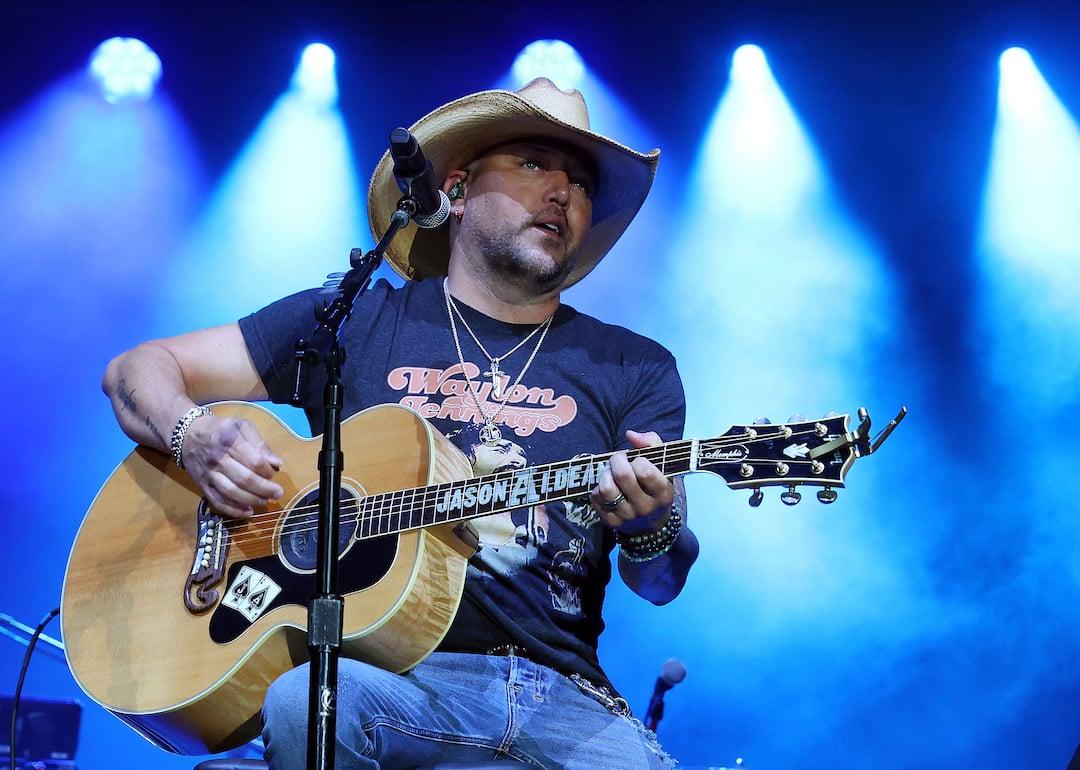
Controversial songs from the last 50 years
Not a year goes by without some music controversy—in fact, 2025 has already delivered a few contentious tracks. In some cases, pushback erupts before a track even comes out. For example, Zach Bryan's October 2025 teaser of an as-yet unreleased song that appears to criticize Immigration and Customs Enforcement drew criticism from no less than the Department of Homeland Security. Then again, even hugely popular tracks can court controversy long after their release. In November 2025, a Catholic school in England raised eyebrows worldwide after announcing that students would be banned from singing songs from Netflix's July 2025 animated hit "KPop Demon Hunters."
These are hardly the first songs to come under scrutiny. For more than a century, the evolution of popular music has delivered stark parallels to Western society's progression. Popular songs and styles partake in a tangible feedback loop, simultaneously responding to and informing cultural shifts. In turn, the best tunes make purposeful or inadvertent statements about the era in which they're being recorded and released. Some of those statements, meanwhile, never lose their ability to resonate. Perhaps this is why songs like "We Shall Overcome" continue to be used as a rallying cry against oppressive forces.
Because music has the unique ability to go with and shape the cultural tide, history's most groundbreaking works are often its most controversial. From the 1920s to the 1940s, songs of poverty, racism, and hard labor threatened to undermine various institutions of authority. That was followed by genres such as rock 'n' roll and funk, which enhanced the growing divide between young and older generations. Decades later, popular music still influences fashion, attitudes, and perspectives, just as political and social forces also shape creative expression, as seen in the new wave of protest music generated by the Black Lives Matter movement.
With that, Stacker celebrates history's most boundary-pushing—and thereby controversial—songs. Taking a broad approach to the concept, Stacker selected musical milestones from 1976 to 2025 that either explored controversial subject matter or literally sparked controversy. To compile the list, Stacker scoured Billboard charts, music and album reviews, news articles, and primary documents found online. The resulting compilation includes protest songs, sociopolitical commentaries, scandalous music videos, and tunes that just rubbed people the wrong way. Each example provides a sonic document of society's past, while a few go to show just how little certain things have changed since the time they were recorded.
A brief disclaimer: Old music can be slippery; some of the songs listed were recorded or released well before they rendered any impact. Similarly, one artist wrote and performed many protest songs and then passed them down to others in the folk tradition, hitting the mainstream somewhere along the way. Consequently, some entries might be best described as approximations about when the song caused a stir or tackled a specific theme.
Without further delay, here are controversial songs from the last 50 years.
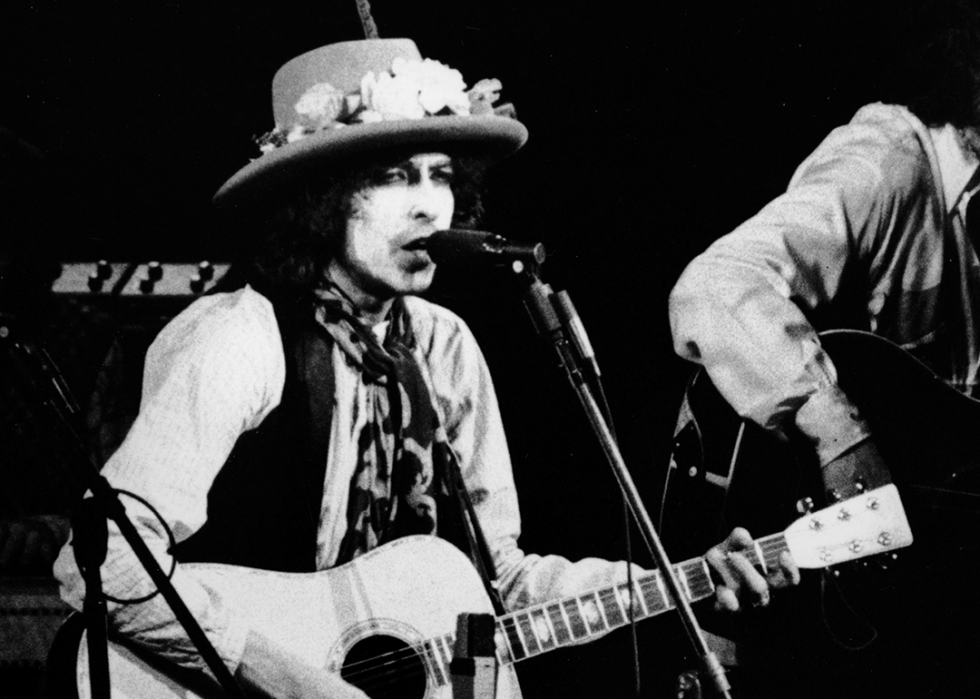
1976: 'Hurricane'
- Artist: Bob Dylan
Bob Dylan strayed from writing protest songs by the 1970s, but this one proved there was plenty of fight in him. Taking a literal approach to its subject matter, the song chronicles the unfair trial and subsequent incarceration of boxer Rubin Carter. It would be nearly a decade before Carter was granted a petition of habeas corpus on procedural grounds and released from prison.
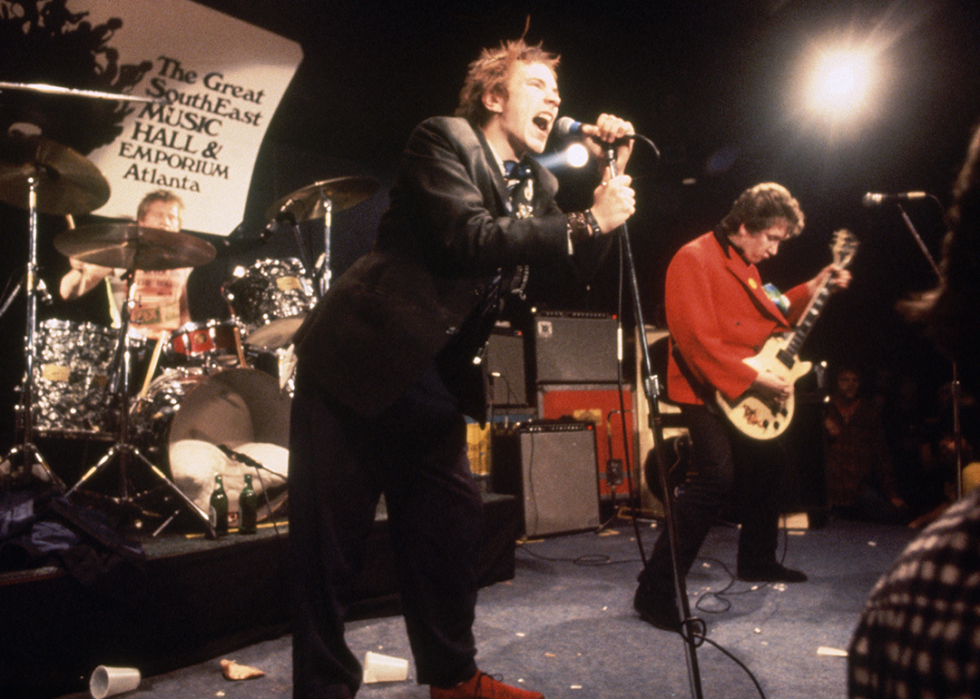
1977: 'God Save the Queen'
- Artist: Sex Pistols
Banned from the BBC for "gross bad taste," this seminal punk song equated British royalty to a "fascist regime." Released on their only album, released in 1977, it presented the Sex Pistols and the punk movement at large as a genuine force to be reckoned with. Some sources have dubbed "God Save the Queen" the most controversial song in history.
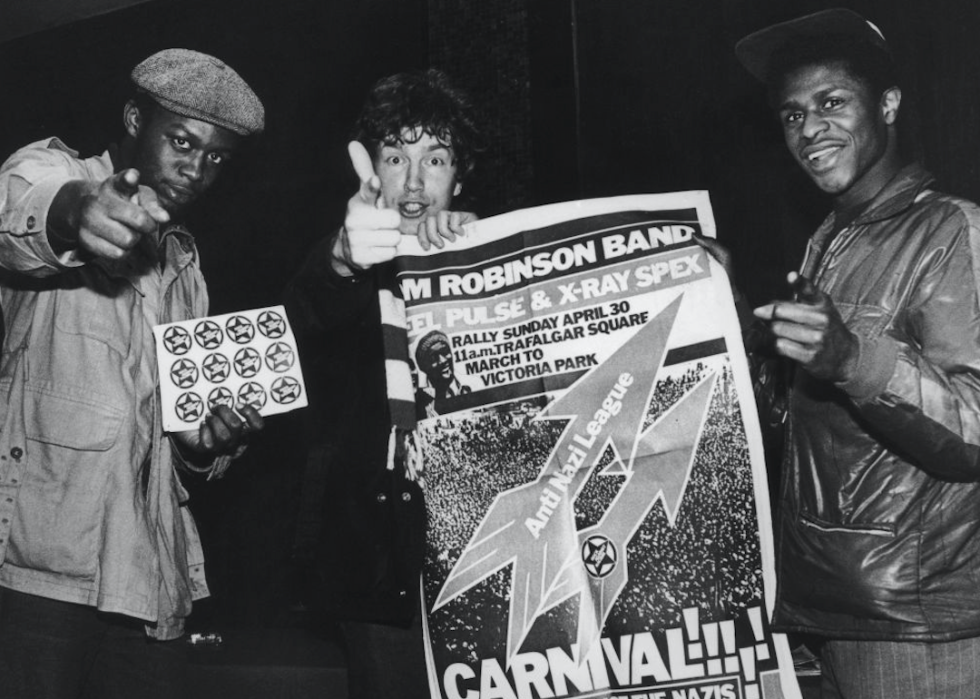
1978: '(Sing If You're) Glad to Be Gay'
- Artist: Tom Robinson Band
The Tom Robinson Band called out British hypocrisy and mistreatment while celebrating gay culture in this groundbreaking tune. A gay man himself, Tom Robinson originally wrote the song for the London Gay Pride Parade before releasing it on an EP. BBC Radio 1 refused to play the song, which became a massive hit on rival station Capitol Radio.
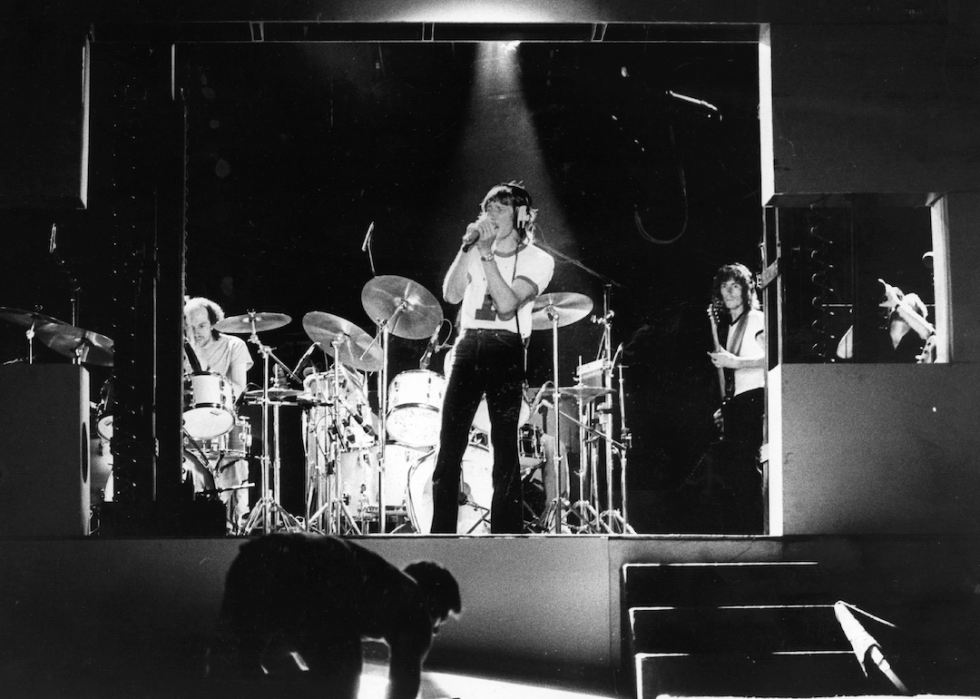
1979: 'Another Brick in the Wall (Part 2)'
- Artist: Pink Floyd
A choir of children chanting the words "Teachers! Leave those kids alone!" was bound to draw its detractors. British Minister Margaret Thatcher was one among the legion of authority figures who despised Pink Floyd's mega-popular song. When South African students later used the catchy chorus as a rallying cry against an apartheid-era education system, local radio stations banned it altogether.
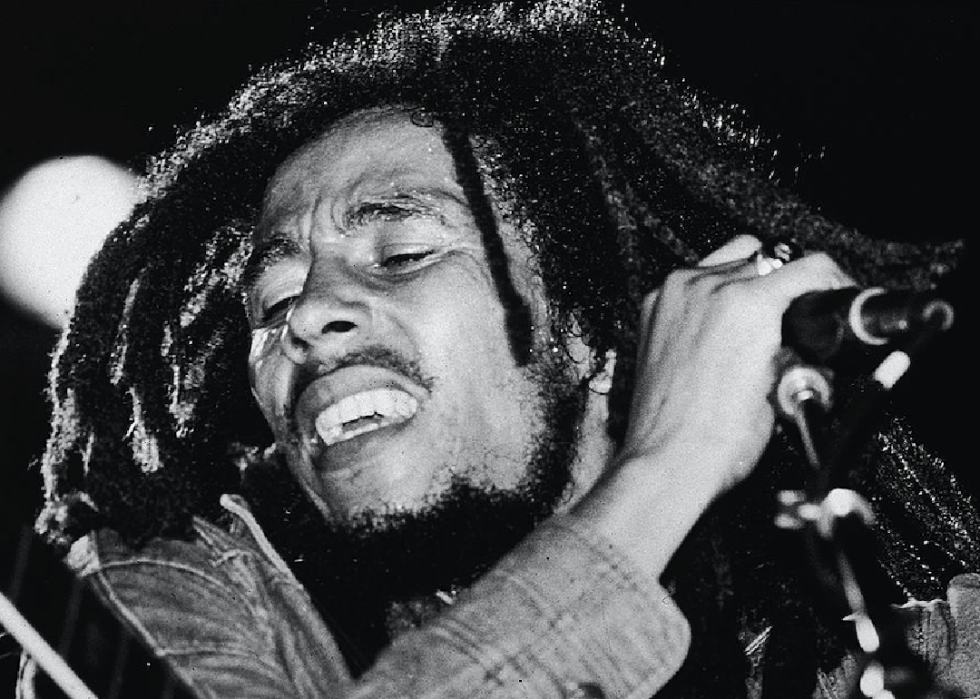
1980: 'Redemption Song'
- Artist: Bob Marley
Reggae legend Bob Marley was behind several powerful protest songs, including this acoustic ballad from his ninth album. Preaching for emancipation from both physical and mental slavery, it seeks redemption through the pursuit of pure freedom. This was Marley's last single, as well as the last song he performed in concert.
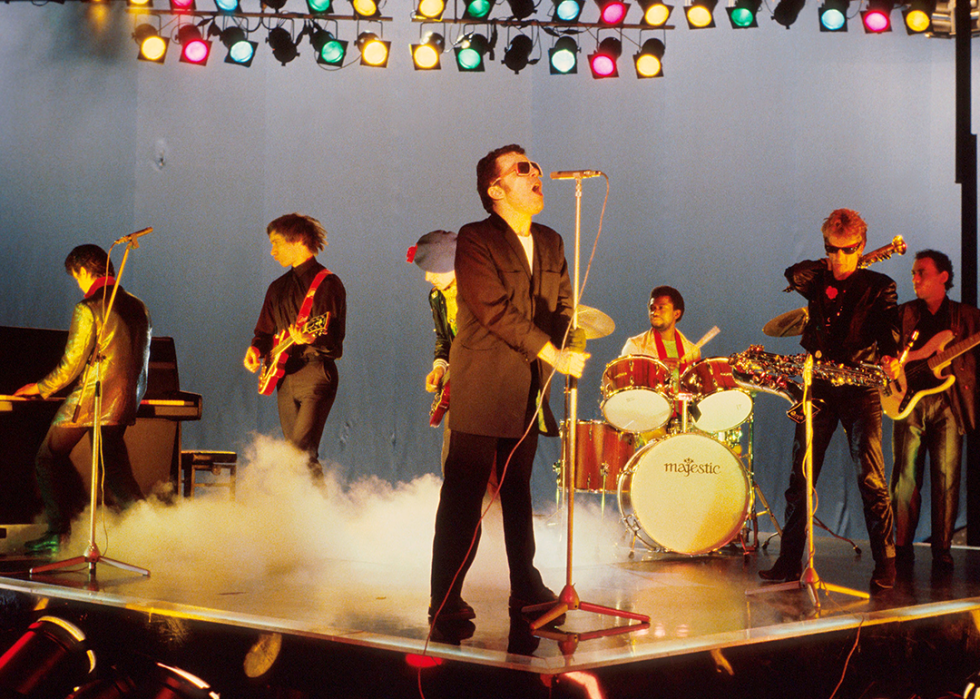
1981: 'Spasticus Autisticus'
- Artist: Ian Dury and the Blockheads
Year: 1981
Polio survivor and punk rock singer Ian Dury was not impressed or amused when the United Nations designated 1981 as the "Year of the Disabled." In direct response to the superficial gesture, Dury and co-writer Chaz Jankel crafted this purposefully offensive tune. The BBC reacted just as Dury expected: by banning the song and trying to derail his career.
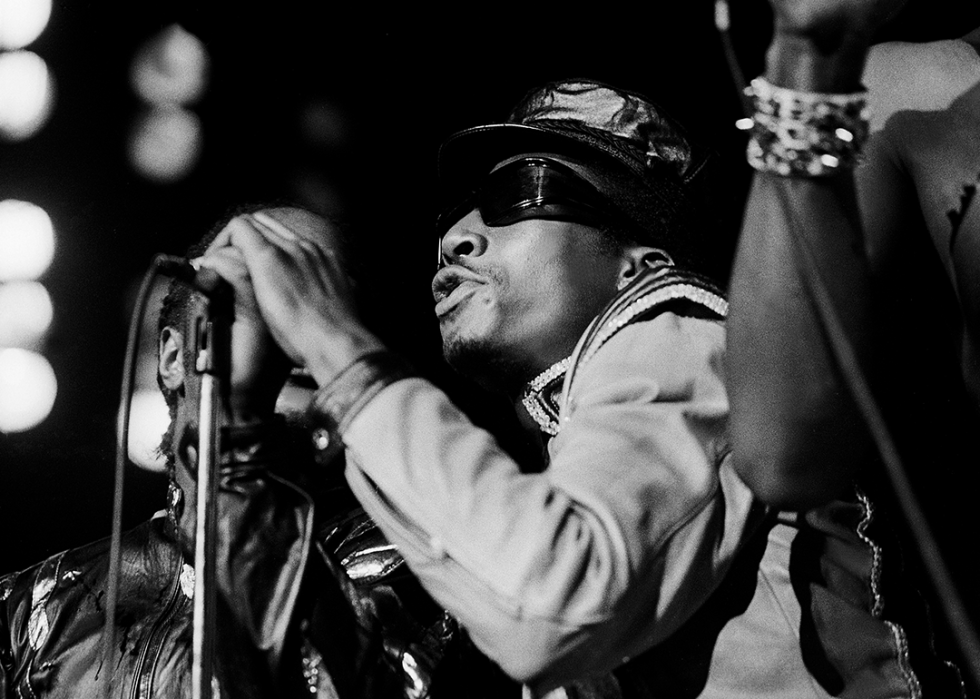
1982: 'The Message'
- Artist: Grandmaster Flash and the Furious Five
Hip-hop pioneer Grandmaster Flash tackles the stress and struggle of inner-city poverty in this influential rap song. Its vivid style of street reporting would open the floodgates for a bevy of subsequent acts, including N.W.A and Public Enemy. Lines like "You'll grow in the ghetto livin' second-rate" continue to resonate in the age of Black Lives Matter and other social justice movements.
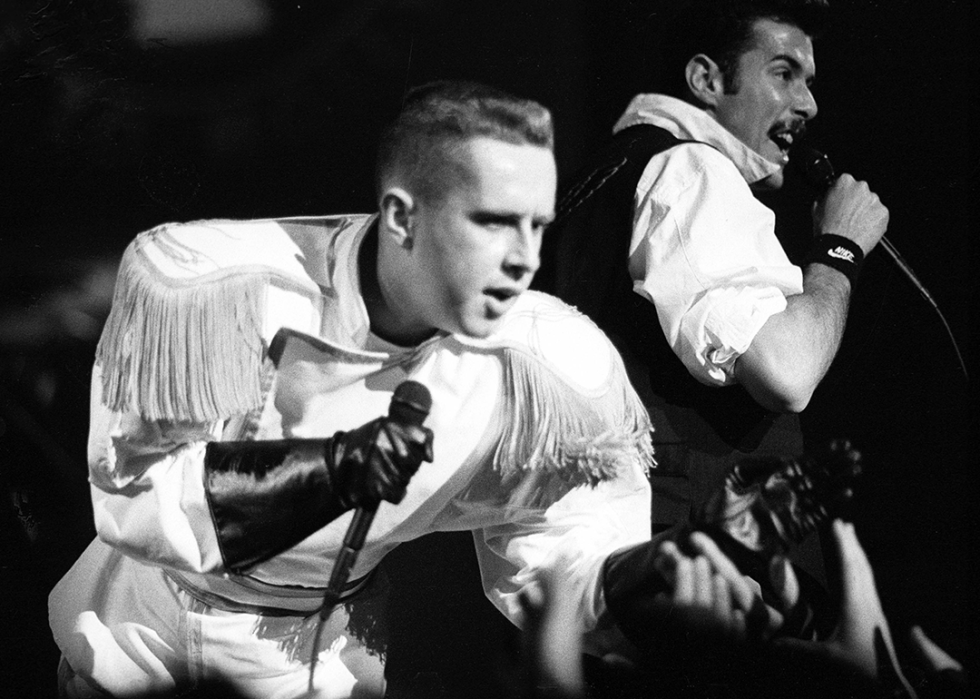
1983: 'Relax'
- Artist: Frankie Goes to Hollywood
This sexually charged single from Frankie Goes to Hollywood barely penetrated the mainstream when it first debuted. Rolling out alongside a cheeky ad campaign and explicit music video, it gradually began to gain steam. A ban by the BBC gave the song an unintended boost, sending it to the top of the U.K. pop chart and keeping it there for five weeks.
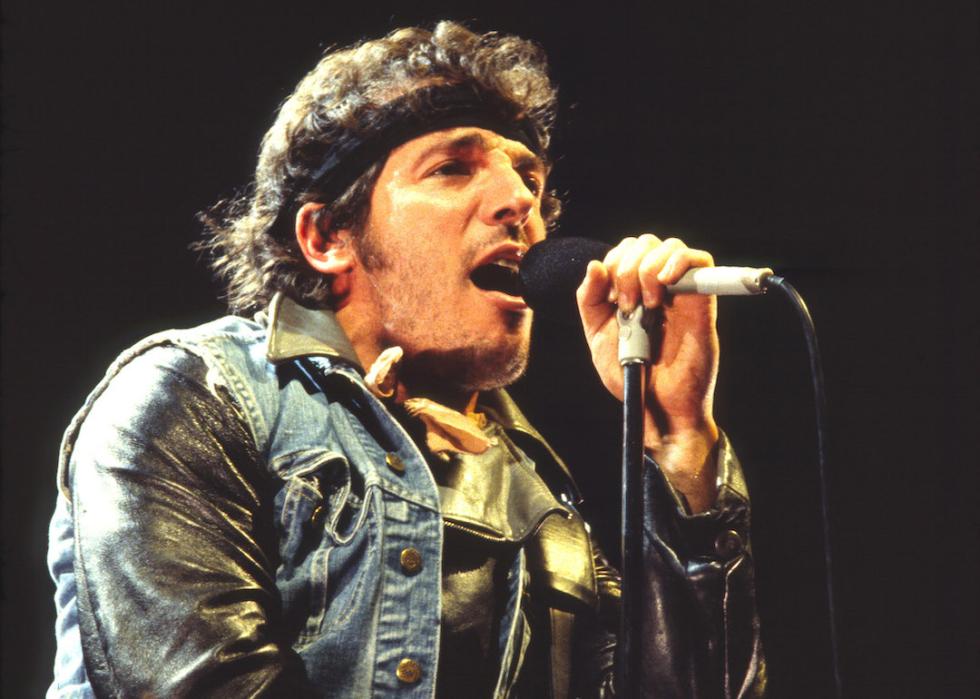
1984: 'Born in the USA'
- Artist: Bruce Springsteen
By employing bouncy instrumentals and a fist-pumping chorus, Bruce Springsteen created one of the most misunderstood anthems in music history. What was intended as a song about despair among war veterans became a patriotic rallying cry used by former President Ronald Reagan during his 1984 re-election campaign. "Born in the U.S.A." is still commonly perceived as a song of "cheerful affirmation," to quote Washington Post columnist George Will.
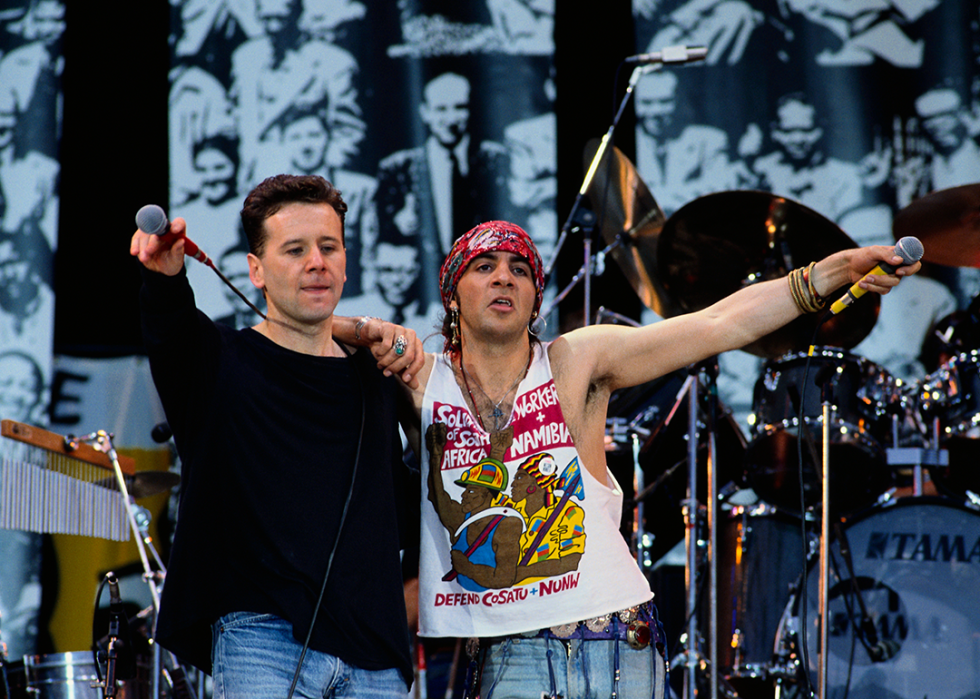
1985: 'Sun City'
- Artist: United Artists Against Apartheid
By 1985, South African apartheid had been in place for 37 years. Hoping to change the brutal system of racial segregation, Steven Van Zandt and Arthur Baker assembled what rock critic Dave Marsh described as "the most diverse line up of popular musicians ever assembled for a single session." The result was this epic protest song and album, which featured Joey Ramone, Miles Davis, and just about everyone in between.
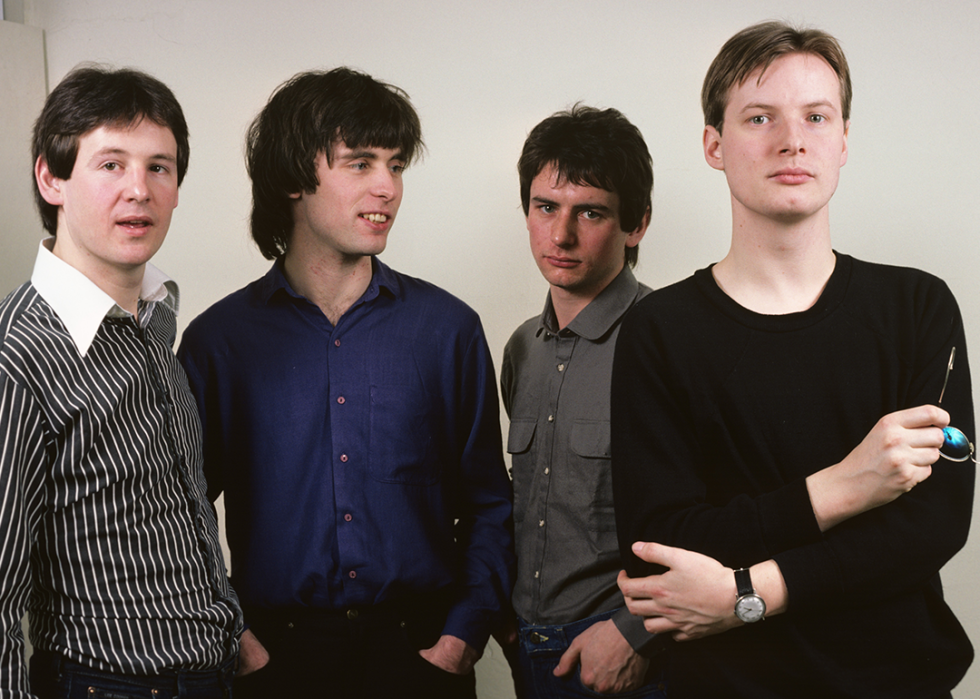
1986: 'Dear God'
- Artist: XTC
What's one way to guarantee controversy in America? Write a cheeky anti-religious song and then put it on the radio. That's exactly what XTC's Andy Partridge did with "Dear God," which prompted angry calls, bomb threats, and a hostage situation.
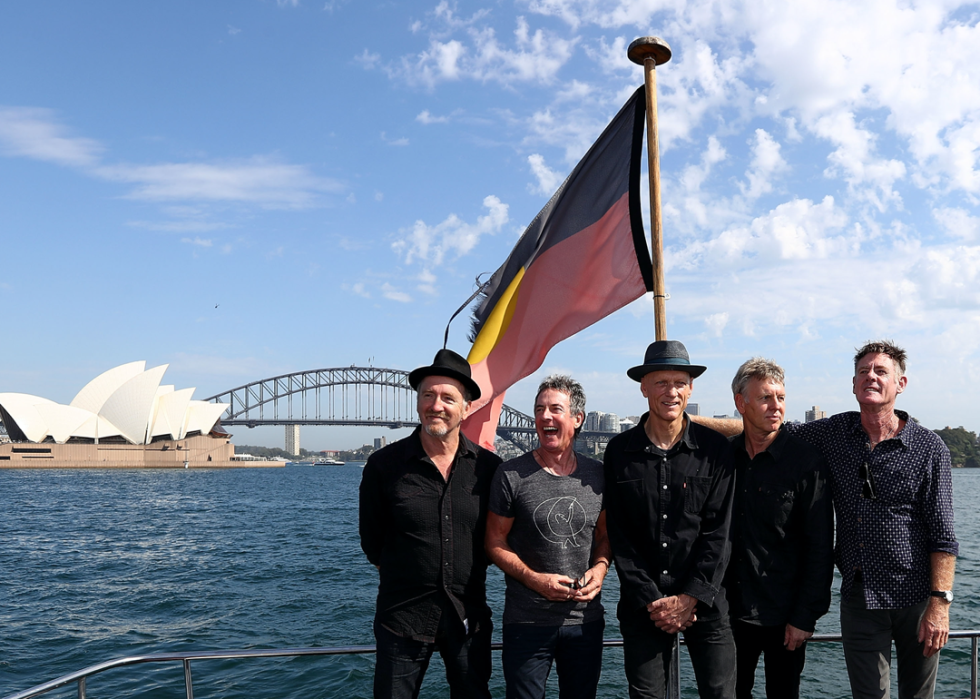
1987: 'Beds Are Burning'
- Artist: Midnight Oil
With this global hit single, Australian rock band Midnight Oil issued a kind reminder that the continent was founded on mass genocide. The infectious protest song also demanded reparations for the remaining members of an Aboriginal group known as the Pintupi. In 2009, it was rerecorded and rebranded as a climate change anthem.
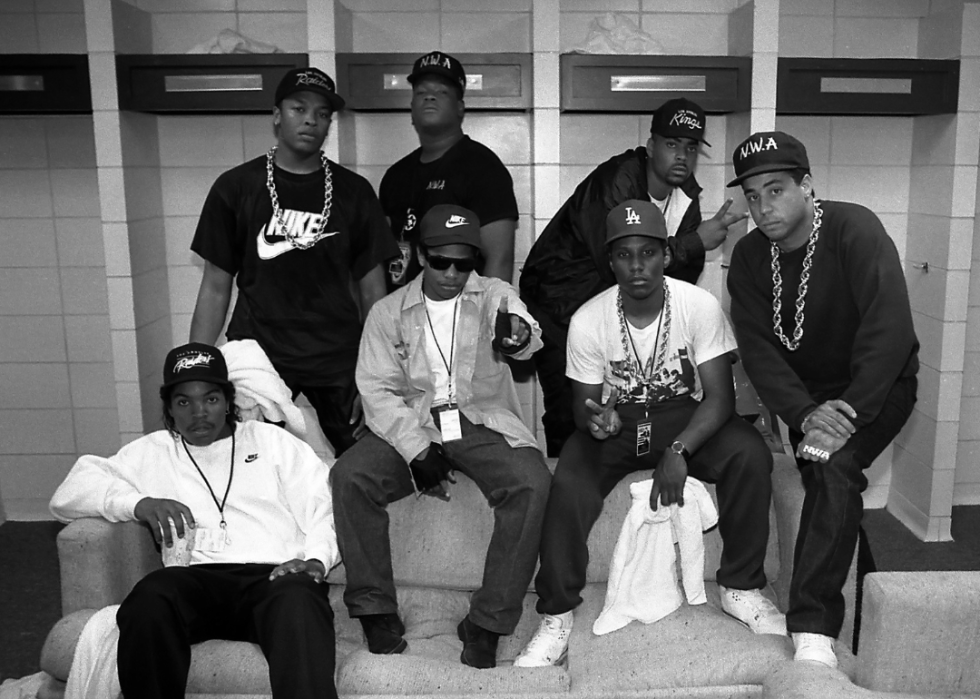
1988: 'F--k tha Police'
- Artist: N.W.A
Hip-hop outfit N.W.A took its First Amendment rights to dangerous extremes in 1988 with the release of this massively controversial track. Sparing no detail or lyric depicting police harassment, the song predictably infuriated various law enforcement agencies. The drama culminated in 1989, when the group was arrested after performing it live in Detroit.
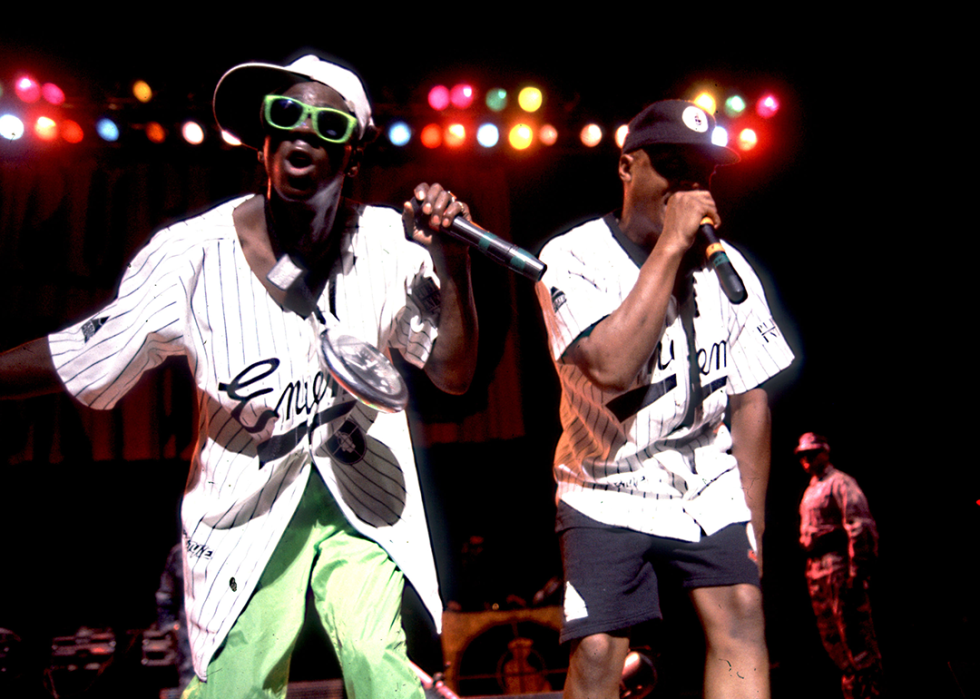
1989: 'Fight the Power'
- Artist: Public Enemy
Lyrical maestro Chuck D. and hype-man Flavor Flav joined forces on some of hip-hop's most searing protest songs, including this one from 1989. Alluding to various aspects of the Black experience in America, it calls out decades of racism and invokes the spirit of resistance. The song first appeared on the soundtrack to Spike Lee's "Do the Right Thing" and then again on the group's 1990 album "Fear of a Black Planet."
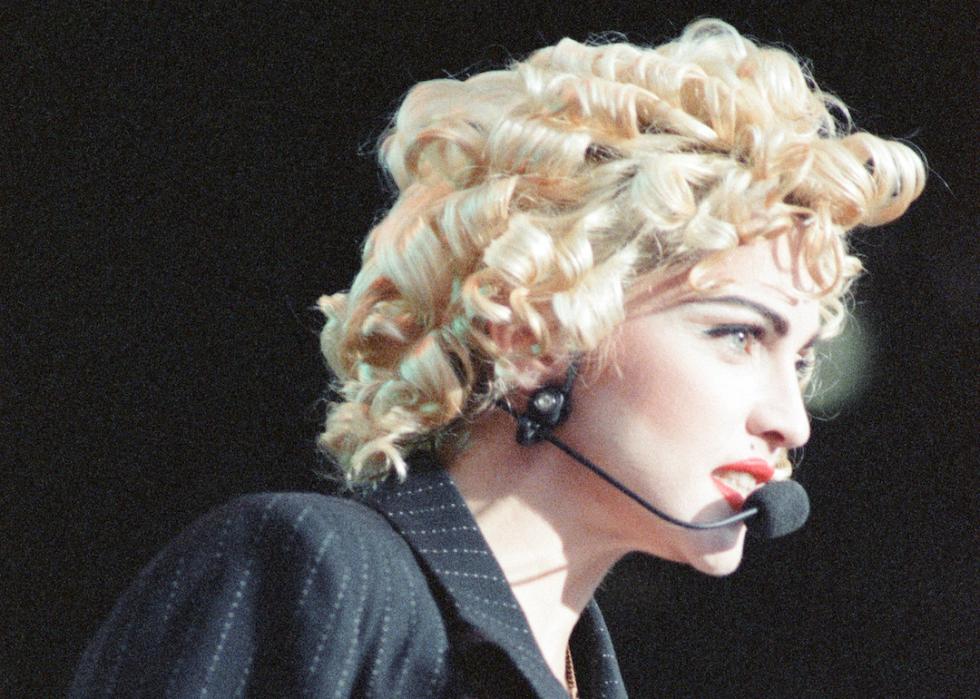
1990: 'Justify My Love'
- Artist: Madonna
A year after shocking the world with the music video for "Like a Prayer," Madonna upped the ante with the steamy music video for this (far) less iconic song. It was swiftly banned from MTV, and then sold on VHS in huge numbers, bringing Madonna's potential endgame to fruition.
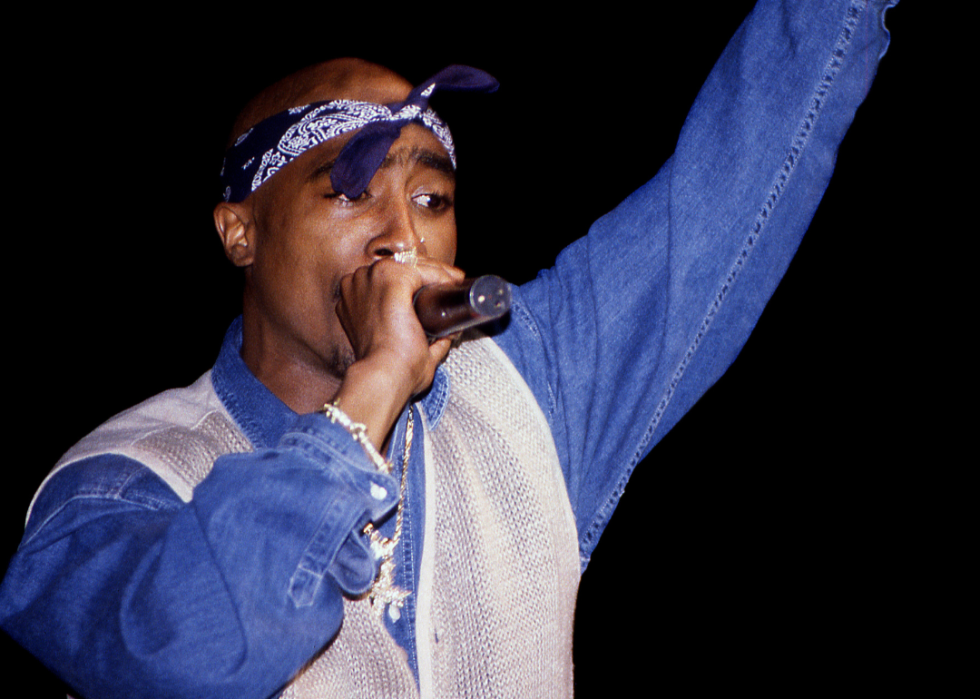
1991: 'Brenda's Got a Baby'
- Artist: 2Pac
Taking inspiration from a tragic newspaper article, 2Pac delivered a stirring narrative on his first major hit single. It chronicles the story of a teenage mother named Brenda living in the ghetto and struggles to support her newborn baby. The song was featured on his debut album "2Pacalypse Now," which former Vice President Dan Quayle publicly denounced.
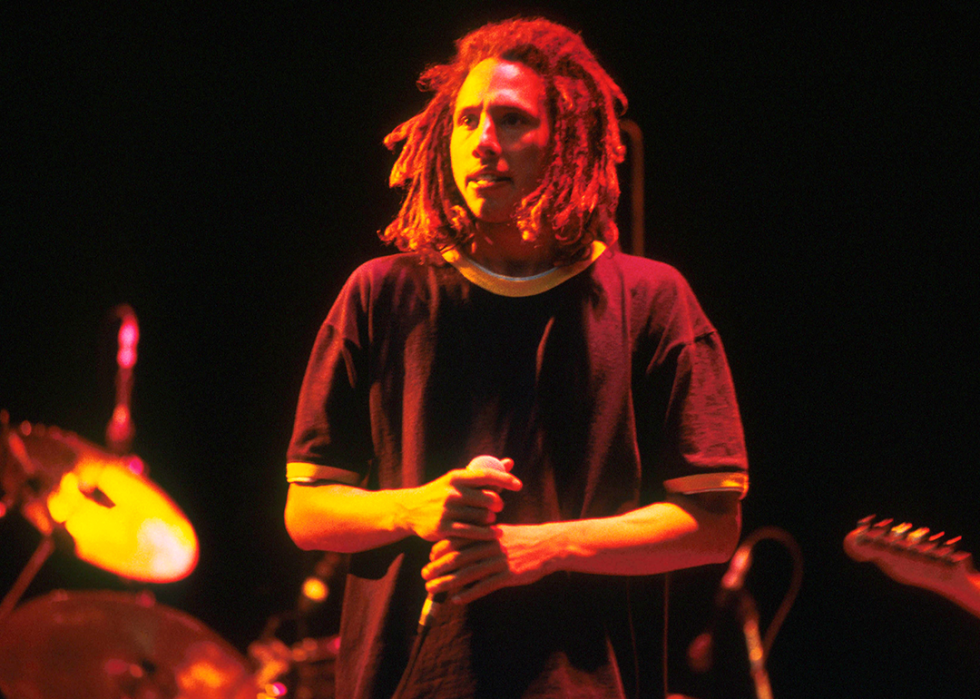
1992: 'Killing in the Name'
- Artist: Rage Against the Machine
As the band's name suggests, Rage Against the Machine took a no-holds-barred approach to various political and social injustices. This lead single off the group's major label debut endures as one of its quintessential tunes, putting institutional racism and police brutality in its crosshairs and hitting the bullseye. Loaded with F-bombs and released in the wake of the Los Angeles riots, the song was alternately censored or banned by various outlets.
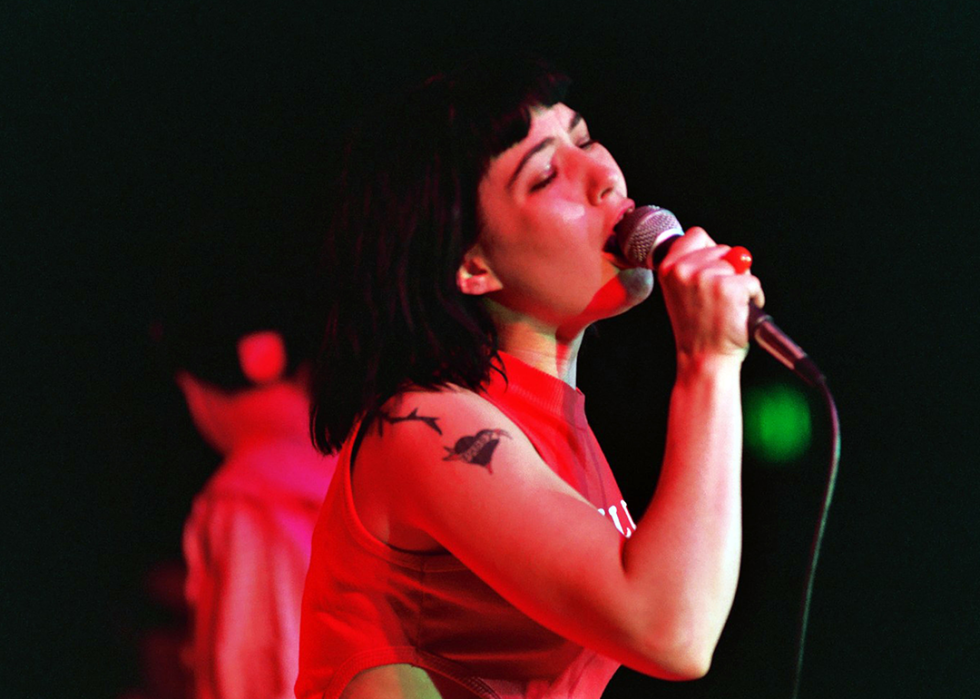
1993: 'Rebel Girl'
- Artist: Bikini Kill
Released in three different versions, "Rebel Girl" was among the foremost works to emerge from the riot grrrl movement. Emanating with feminist empowerment and punk attitude, the song is delivered from an unabashedly gay perspective. Legendary rocker Joan Jett produced the single, providing additional guitar and backing vocals on it as well.
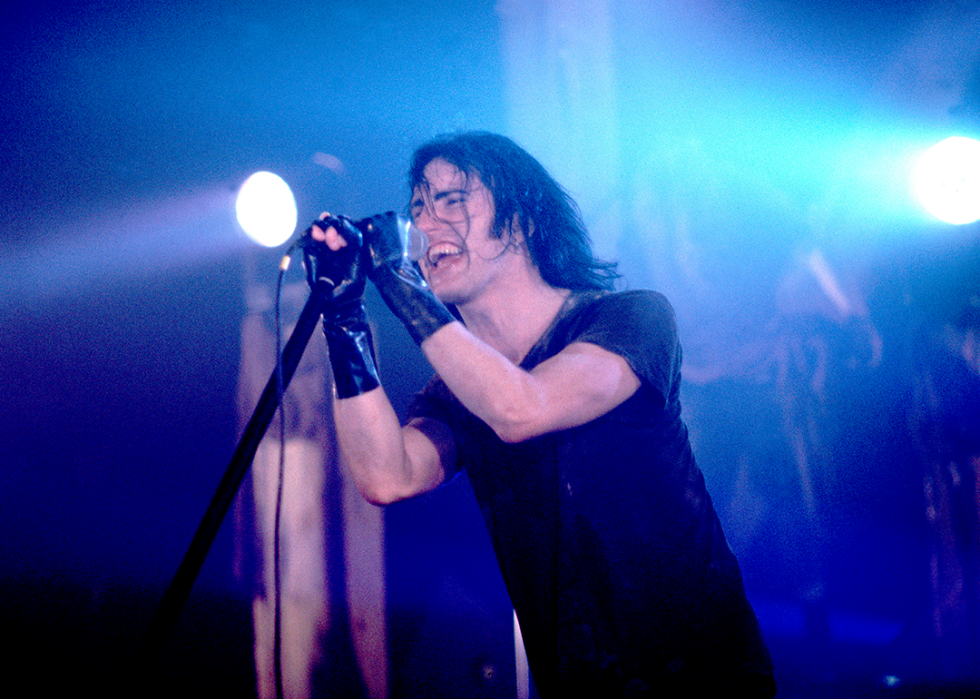
1994: 'Closer'
- Artist: Nine Inch Nails
True to its grim industrial vibe, this Nine Inch Nails classic was all kinds of disturbing when it first debuted. The music video was akin to a body-horror short film, while the lyrics delivered a line so explicit it's remained the stuff of legend. Both the video and song were censored for airplay, though, surely, that didn't stop many suburban parents from complaining about the content.
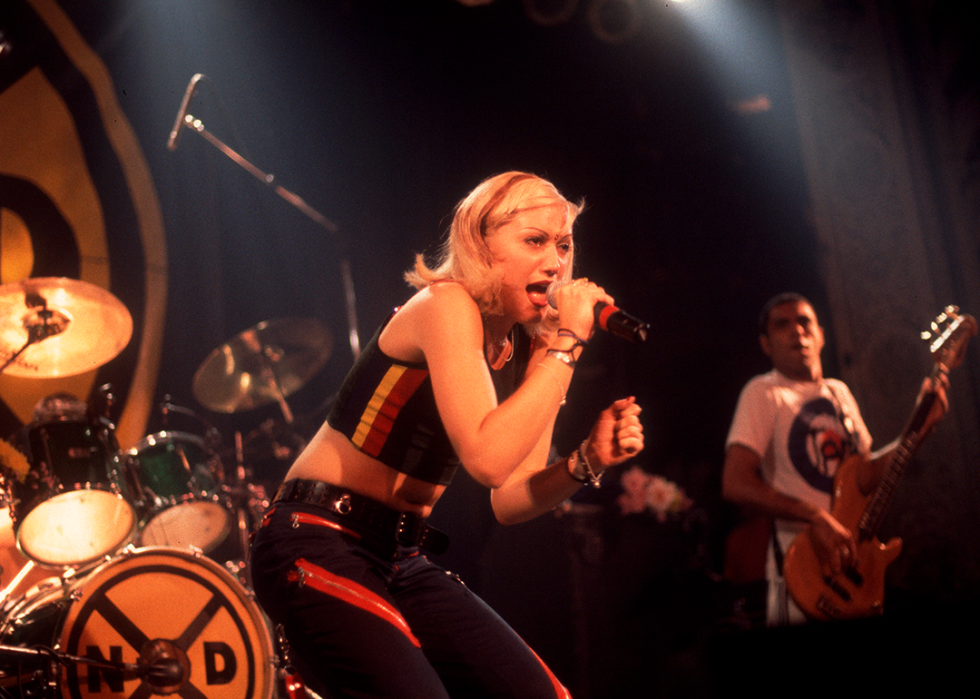
1995: 'Just a Girl'
- Artist: No Doubt
Ska band No Doubt broke out big time with this massively popular single, on which singer Gwen Stefani strikes the perfect balance between irony and frustration. Railing against the modern patriarchy, she dismantles sexist stereotypes from the inside out. "Oh, am I making myself clear?" she asks in the song. The answer was a resounding yes.
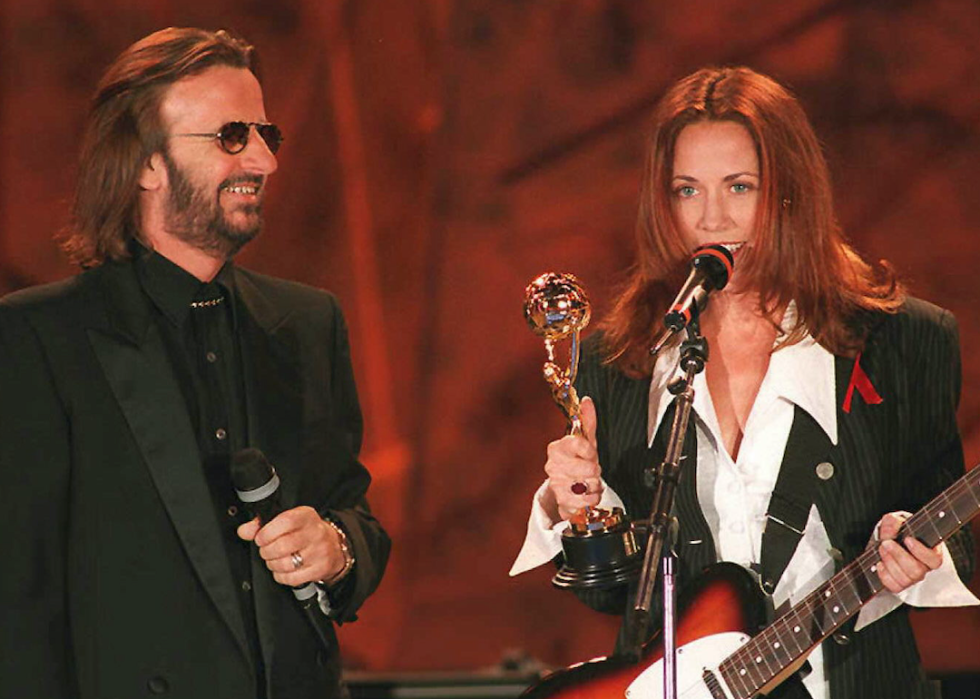
1996: 'Love is a Good Thing'
- Artist: Sheryl Crow
Sheryl Crow was a national darling by the time she released her eponymous second album, but not everyone was digging this particular song. The lyric about children killing each other with "a gun they bought at Walmart discount stores" might have had something to do with it. As a direct result, the retail giant refused to stock Crow's album on its shelves.
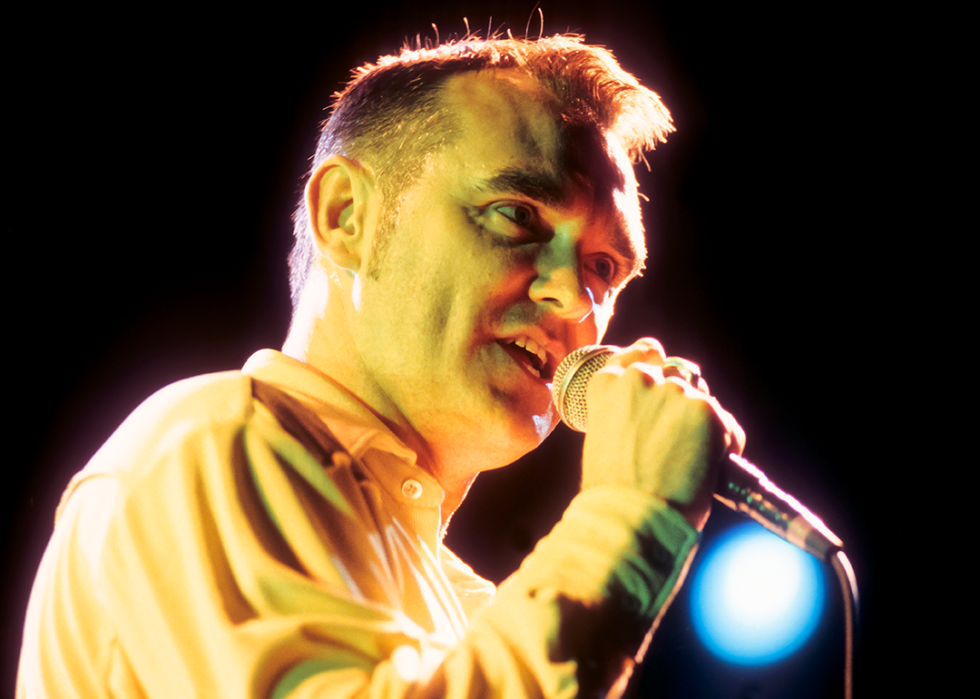
1997: 'This Is Not Your Country'
- Artist: Morrissey
Always ready and willing to voice his opinion, former Smiths frontman Morrissey can be quite the rabble-rouser. With this 1997 effort, he took on the theme of immigration by adopting a harsh nationalist tone. Some will argue the song is overly xenophobic, which Morrissey might argue is the entire point.
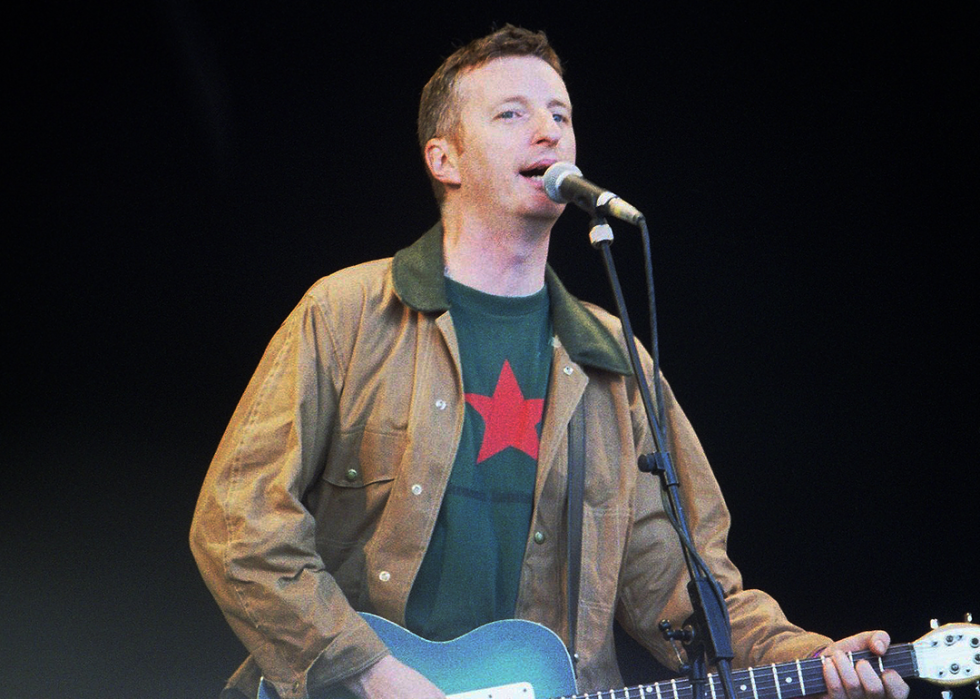
1998: 'Eisler on the Go'
- Artist: Billy Bragg & Wilco
Folk legend Woody Guthrie was so prolific in his time that he left behind thousands of lyrics, many of which had never been turned into songs. Enter Billy Bragg & Wilco, who added melodies and arrangements for the 1998 album "Mermaid Avenue." Among the album's more socially conscious tunes was "Eisler on the Go," about Austrian composer and lifelong communist Hanns Eisler.
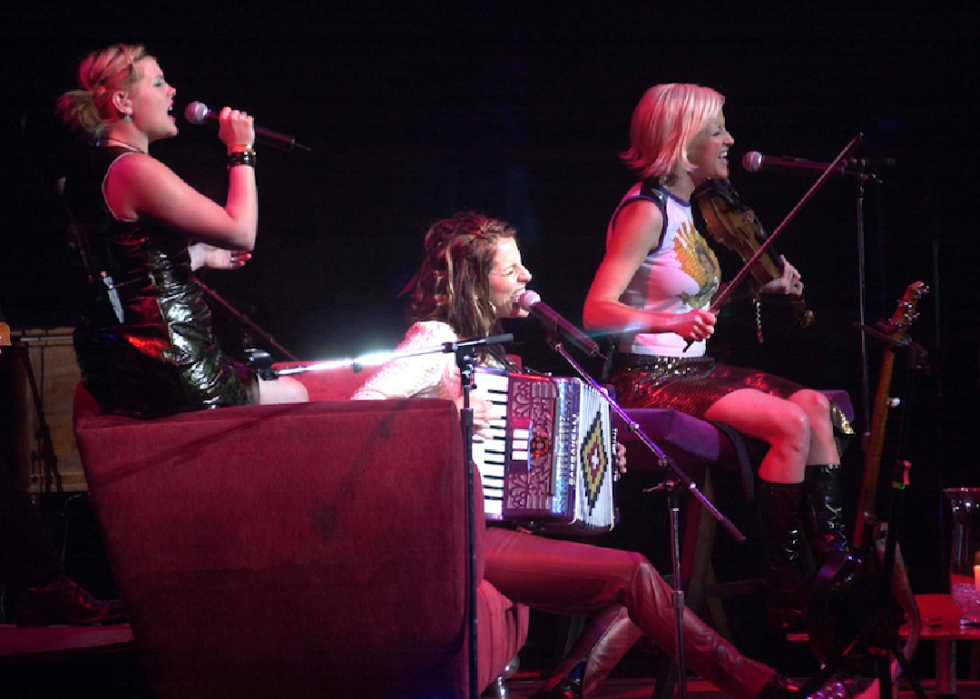
1999: 'Goodbye Earl'
- Artist: Dixie Chicks
Shining a darkly comedic spotlight on issues of domestic abuse, this country tune was written by Dennis Linde and then popularized by the Dixie Chicks (who rebranded as the Chicks in 2020). It centers on two former best friends named Mary Ann and Wanda, who team up to murder Wanda's abusive husband, Earl. The song debuted in 1999 and broke out the following year when various radio stations refused to play it.
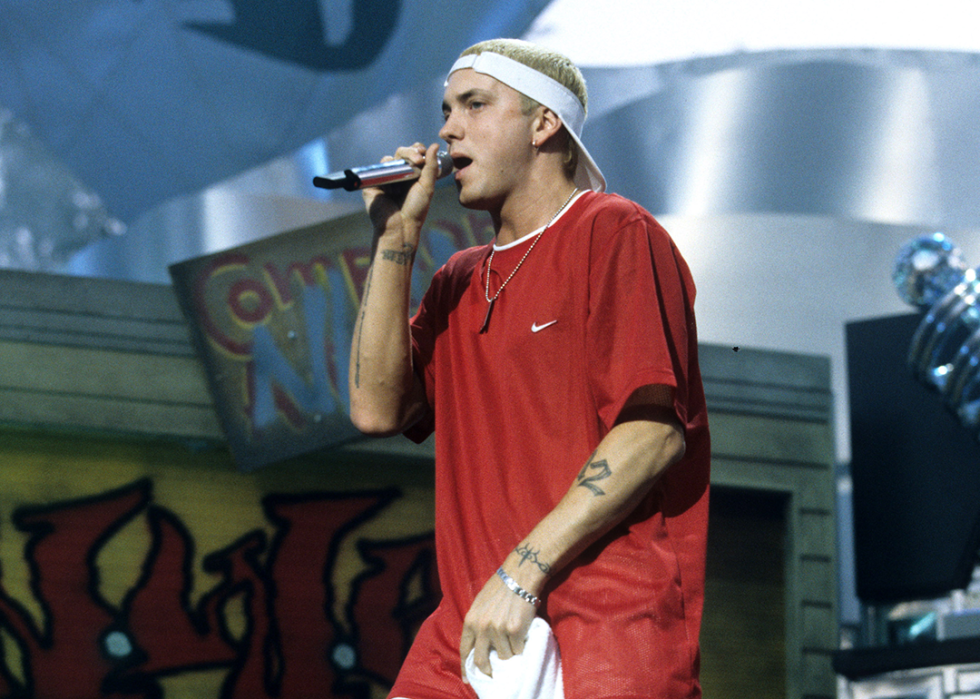
2000: 'Stan'
- Artist: Eminem
Rapper Eminem rode in on a wave of controversy and kept that momentum going with his second album, which features this smash hit. What starts as a series of fan letters develops into something far more demented as the song spirals into a bad case of life imitating art. By the time Eminem responds, it's far too late…
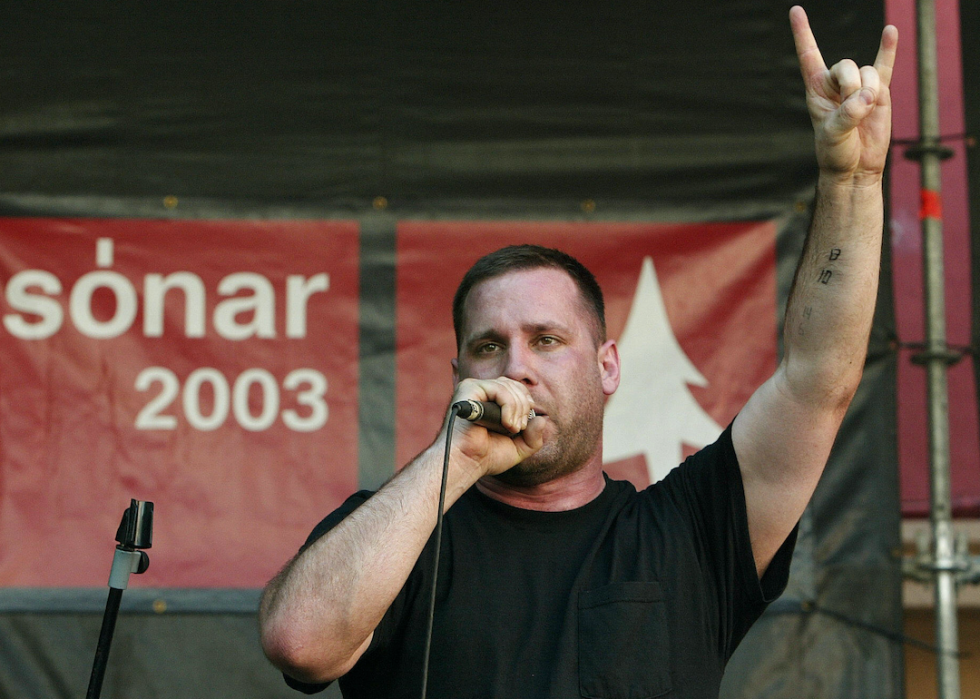
2001: 'Makeshift Patriot'
- Artist: Sage Francis
Rhode Island's Sage Francis took a trip to Ground Zero just five days after 9/11 and recorded this underground hit a month later. Lambasting exploitative media tactics and other capitalist crutches, Francis emphasizes the real tragedies at hand. Many of the lyrics do seem downright sage in retrospect.
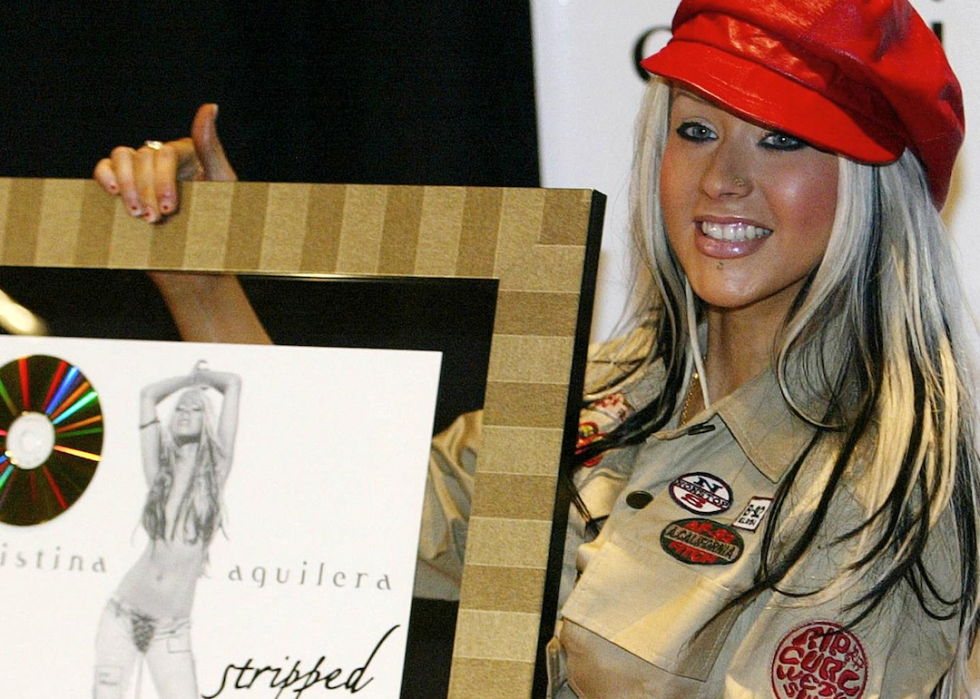
2002: 'Dirrty'
- Artist: Christina Aguilera
Christina Aguilera went from coy girl next door to scandalous sex queen with her fourth studio album, "Stripped." Leaving no room for doubt was the adjoining music video for this lead single, which depicted plenty of bare flesh and various fetishized images. The public outcry that followed was swift, sexist, and widespread.
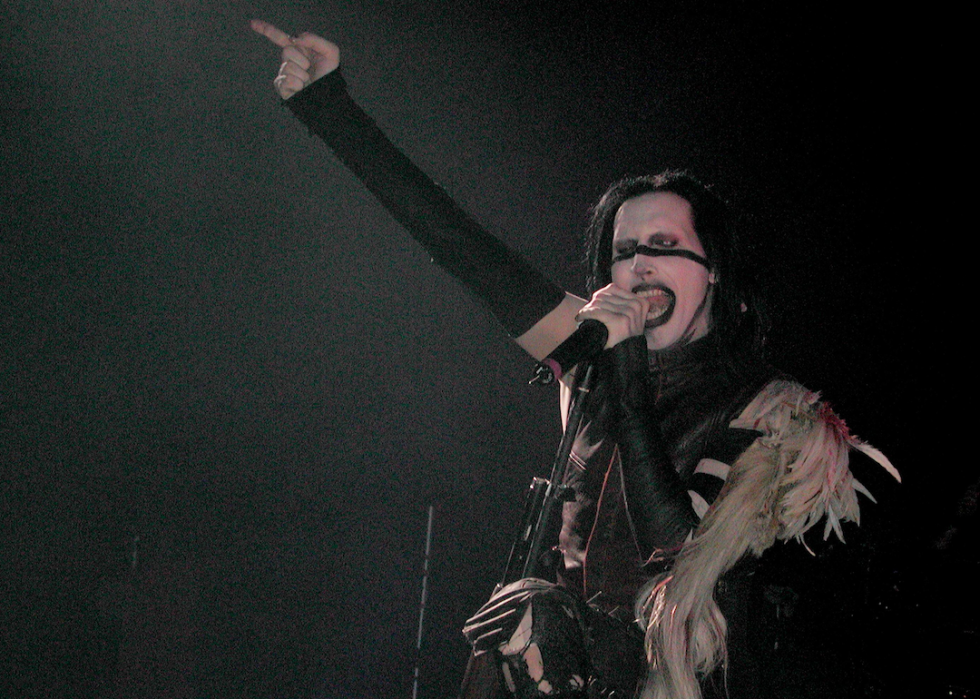
2003: '(s)AINT'
- Artist: Marilyn Manson
Marilyn Manson was no stranger to controversy by the time he self-financed the explicit music video for this predictably grim song. Directed by Asia Argento, it left virtually no sin or graphic image to the imagination. Manson's own record label didn't even wait for the blowback, placing a domestic ban on the video back in 2003.
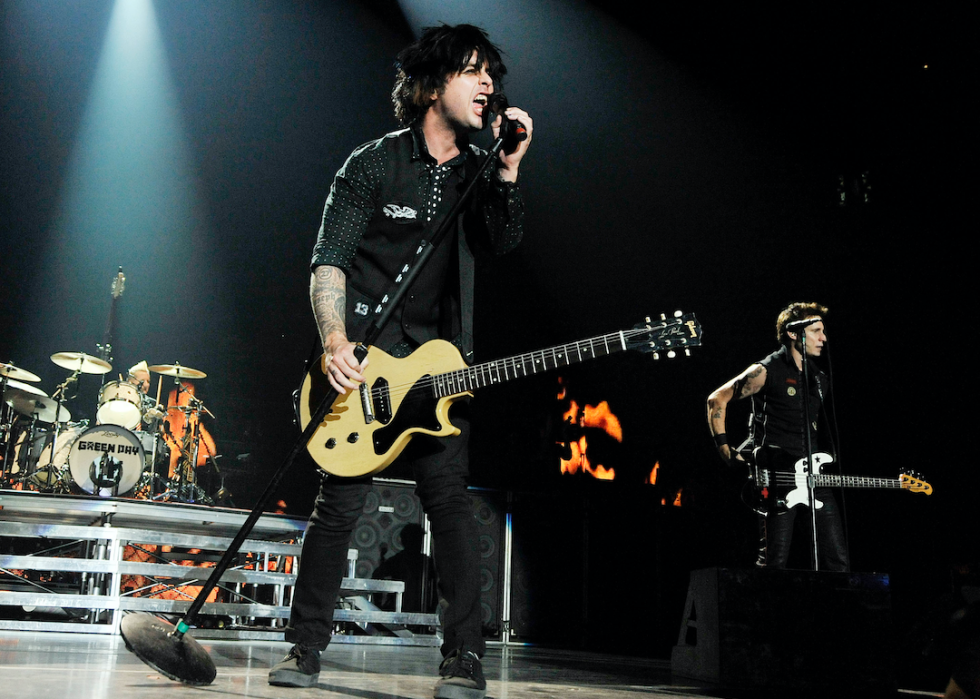
2004: 'American Idiot'
- Artist: Green Day
Mischievous pop-punk outfit Green Day underwent an evolution of sorts when it released this scathing single. Asking if listeners can "hear the sound of hysteria," the song derides media fear tactics and their mind-controlling effects. And while the lyrics aren't overtly aimed at politicians, that didn't stop Britain from using the song for political ends in 2018.
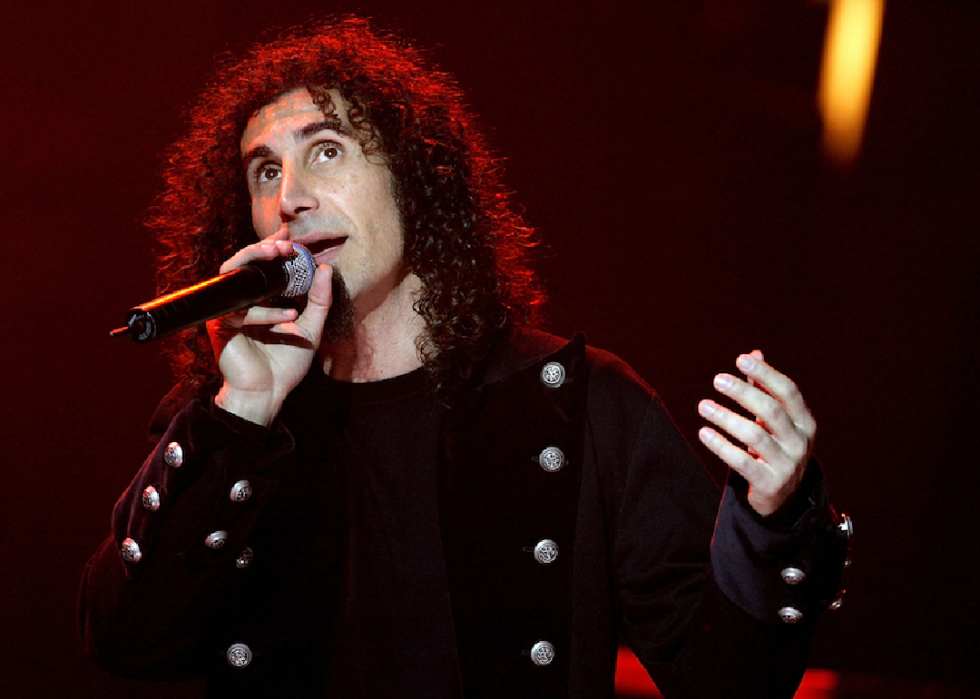
2005: 'B.Y.O.B'
- Artist: System of a Down
Picking up where Rage of the Machine left off, metal band System of a Down has skewered various social and political targets throughout its long career. This angry, award-winning protest song was released two years into the Iraq War, when the country was sending thousands of troops to fight for a cause they didn't fully understand. Amid a flurry of breakneck tempo changes, lead singer Serj Tankian howls one question over and over again, "Why do they always send the poor?"
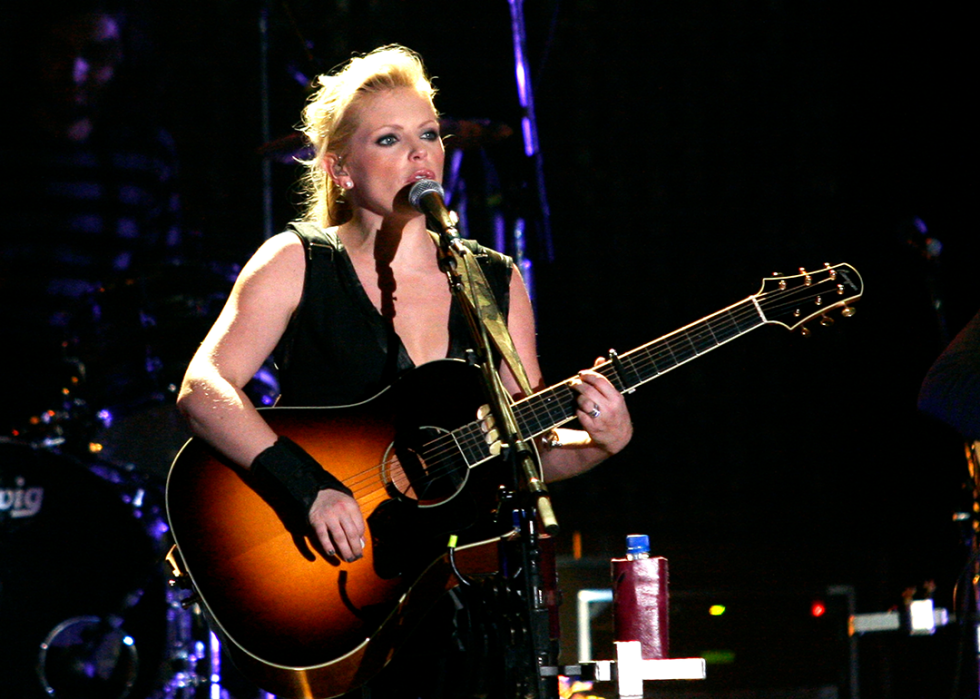
2006: 'Not Ready to Make Nice'
- Artist: Dixie Chicks
When lead singer Natalie Maines made disparaging remarks about George W. Bush in 2003, it sent the Dixie Chicks into a widely publicized tailspin. By 2006, the country group was still "Not Ready to Make Nice"—and neither were their fans. This unapologetic comeback song remains the group's biggest domestic hit to date.
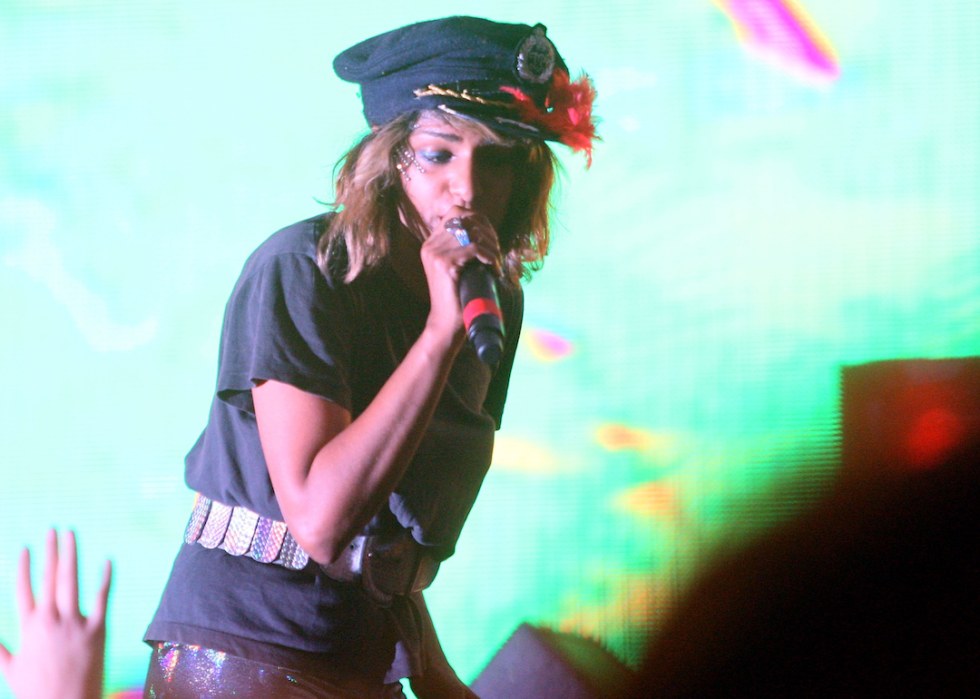
2007: 'Paper Planes'
- Artist: M.I.A.
Forged visas and border crossings might sound like the stuff of potential controversy, but it was the chorus of loud gunshots that gave outlets pause. MTV and various radio stations responded by muting out the gunshots during airplay, thereby squeezing some life out of the song. This was just one among a series of controversial benchmarks for outspoken British rapper M.I.A.

2008: 'I Kissed a Girl'
- Artist: Katy Perry
Turning away from her Christian music roots, Katy Perry launched her pop career by way of this smash hit single. While some might see the lyrics as problematic among certain groups, it was actually Perry's appropriation of gay culture that drew the most scorn. The singer herself later admitted that the song incorporates "a couple of stereotypes."
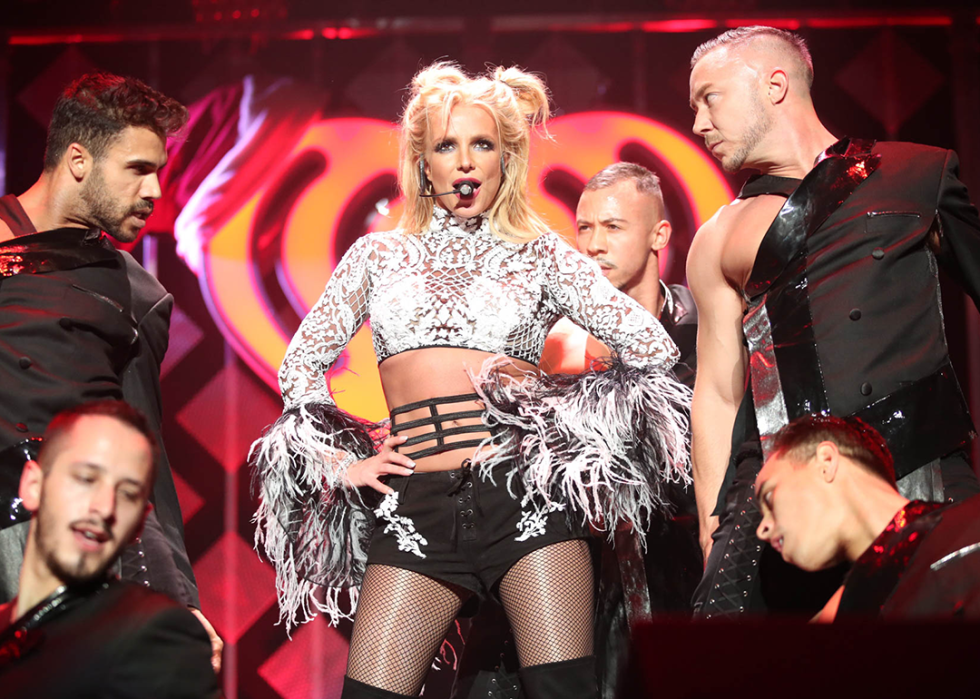
2009: 'If You Seek Amy'
- Artist: Britney Spears
Global phenom Britney Spears made it abundantly clear that she was not a girl, and most definitely a woman, with this not-so-subtle tune. Released as the third single from her sixth studio album, it has quite little to do with looking for someone named "Amy." The American Parents Television Council was definitely not amused.

2010: 'Pumped Up Kicks'
- Artist: Foster the People
The indie pop veneer of this 2010 single makes its core theme of anti-gun violence all the more unsettling. To explore the lyrics is to discover a twisted take on mass shootings, which comes from the perspective of a homicidal teenager and remains relevant to this day. Foster the People felt MTV was being supremely hypocritical when it censored the song for airplay.
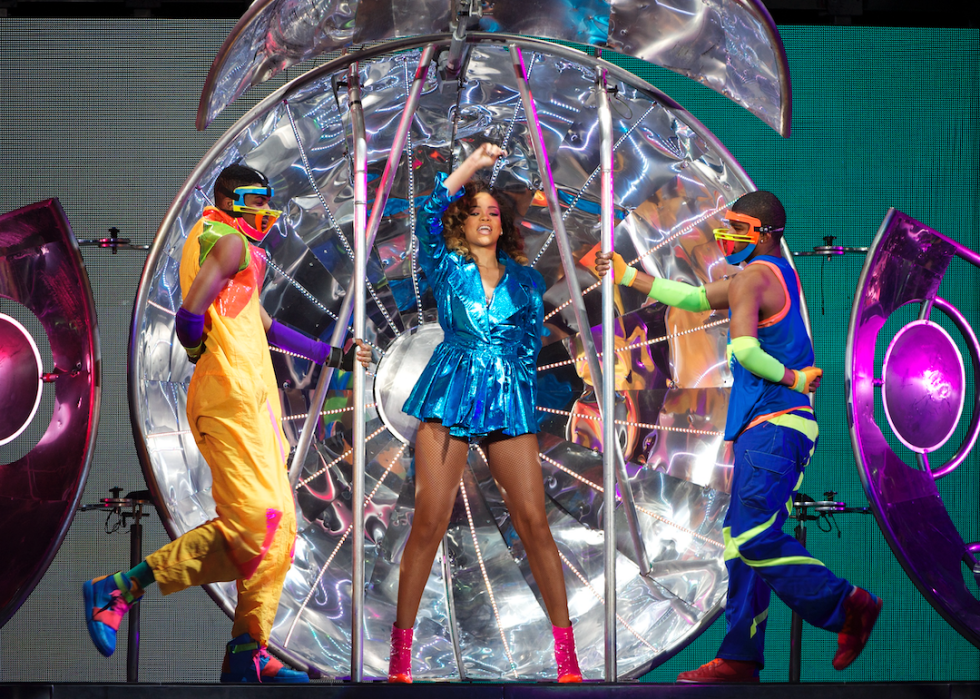
2011: 'Man Down'
- Artist: Rihanna
Reportedly inspired by Bob Marley's "I Shot the Sheriff," this song and its accompanying music video saw Rihanna taking on the role of a vengeful assault victim. Turning the tables on her assailant, the singer's alter-ego hunts down and kills him. In response to a flood of complaints, Rihanna took to Twitter to defend the song's controversial narrative.
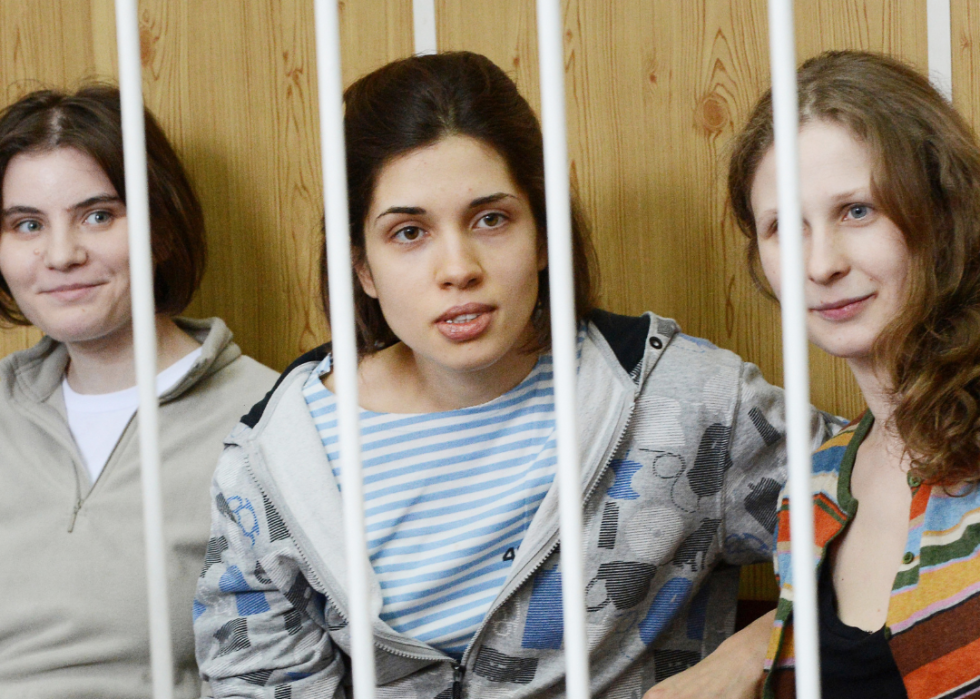
2012: 'Putin Lights up the Fires'
- Artist: P**** Riot
The same year the members of P**** Riot were sentenced to prison for "hooliganism motivated by religious hatred," the group released this scathing response. In true band fashion, the song boldly proclaimed, "Seven years is not enough for us—give us 18!" The group's members were lucky that Russia's government didn't oblige.
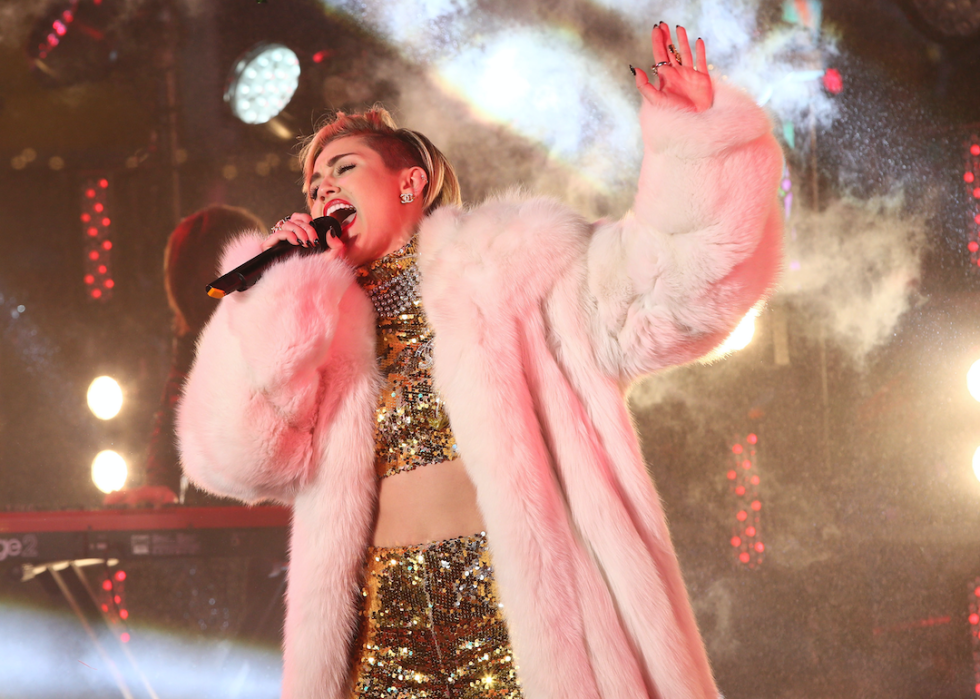
2013: 'We Can't Stop'
- Artist: Miley Cyrus
In 2013, former Disney darling Miley Cyrus took just about every conceivable measure to distance herself from her G-rated past. Among her many efforts was this sultry party track, which came loaded with drug references. Keeping the controversy alive was a copyright infringement lawsuit from Michael May, who claims that the song lifted his lyrics; the parties eventually reached an undisclosed settlement.
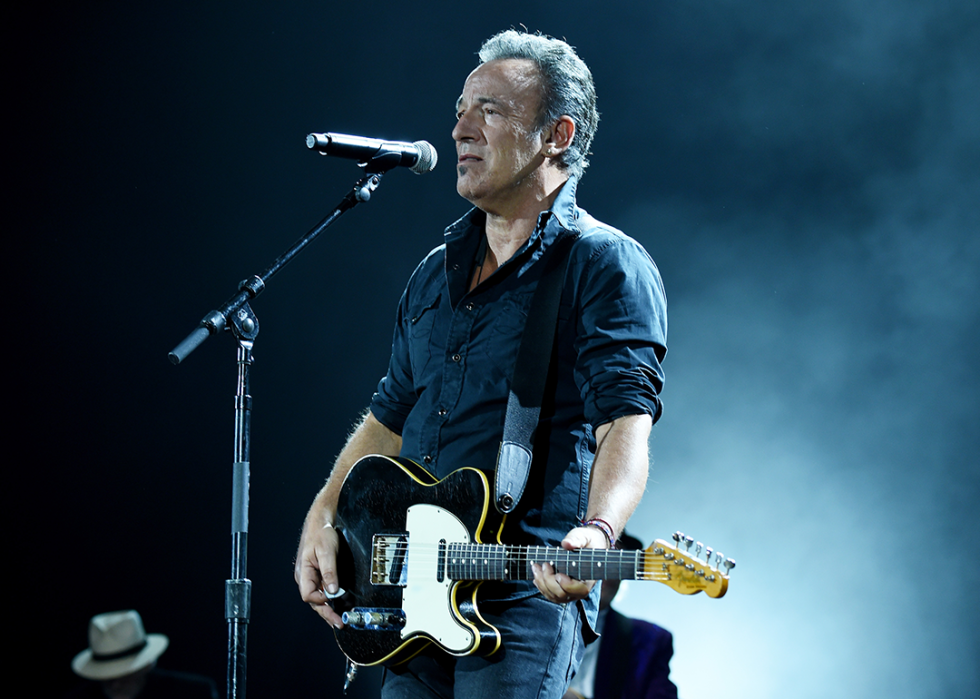
2014: 'American Skin (41 Shots)'
- Artist: Bruce Springsteen
By the time this protest song appeared on Bruce Springsteen's 2014 album "High Hopes," it had already generated more than a decade's worth of controversy. Inspired by the police shooting of Amadou Diallo, the song debuted during a concert at Madison Square Garden in 2000. In response, the New York City Police Department Patrolmen's Benevolent Association called for a public boycott of Springsteen's music.
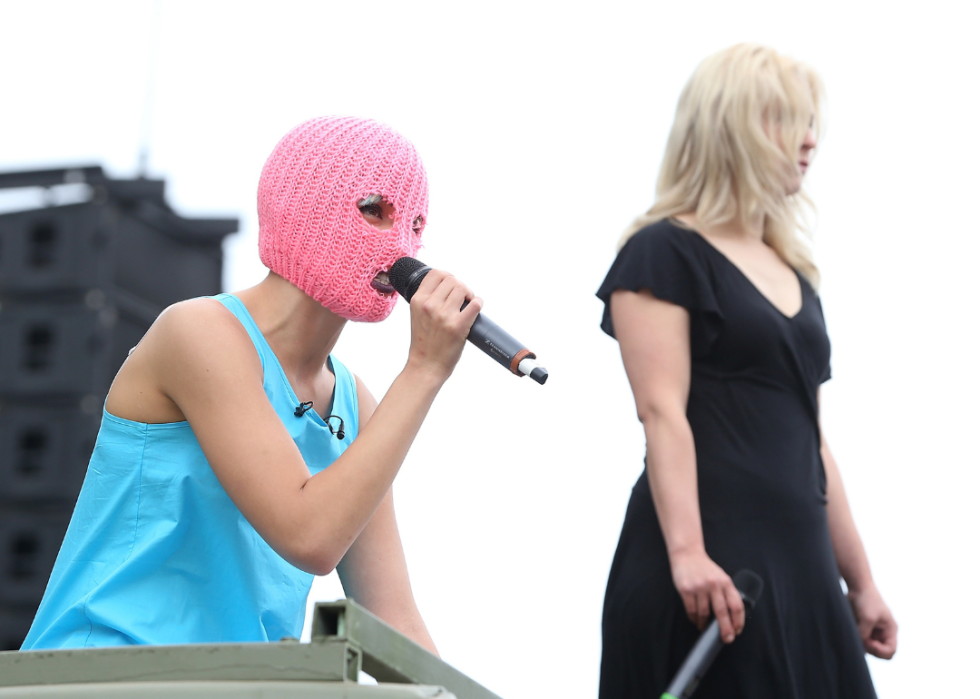
2015: 'I Can't Breathe'
- Artist: P**** Riot
By 2015, P**** Riot was out of prison and unwilling to let a little hard time get in its way. Shaking things up on American soil, the band dedicated its first English tune to anyone who's been feels choked to death by war and police violence. The song is named in honor of police brutality victim Eric Garner, whose last words were, "I can't breathe."
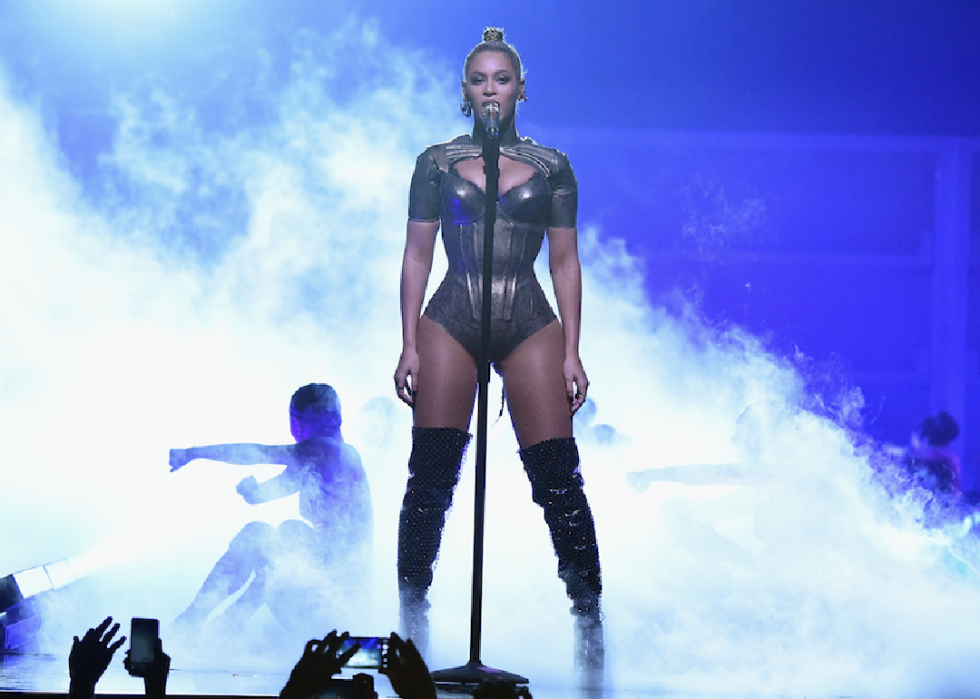
2016: 'Formation'
- Artist: Beyoncé
Until 2016, Beyoncé had expressed little interest in using the struggles of Black Americans as a thematic basis for her music. That all changed with "Formation," a super-charged anthem that sprung from the collective well of Black female empowerment. On the heels of a controversial video, Queen Bey added fuel to the fire with a militarized Super Bowl performance.
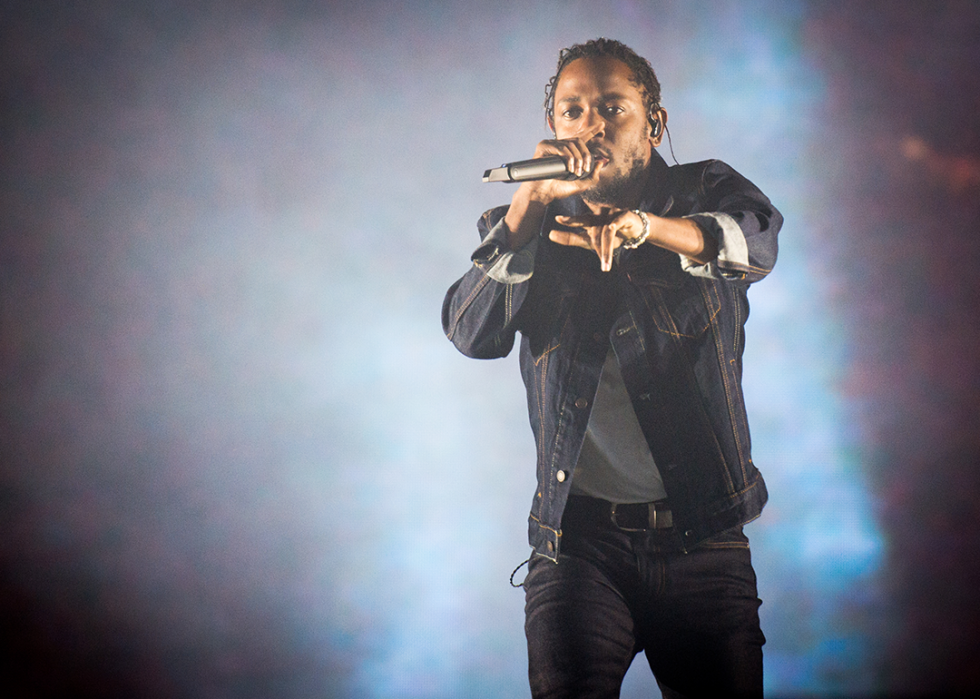
2017: 'The Heart Part 4'
- Artist: Kendrick Lamar
Compton rapper Kendrick Lamar took on a slew of new targets with the release of what was a hotly anticipated track. Representing the fourth installment in his "The Heart" series, it calls out former President Donald Trump and references ongoing beef with other rappers. It also sees Lamar declaring himself the "greatest rapper alive," which might very well be true.
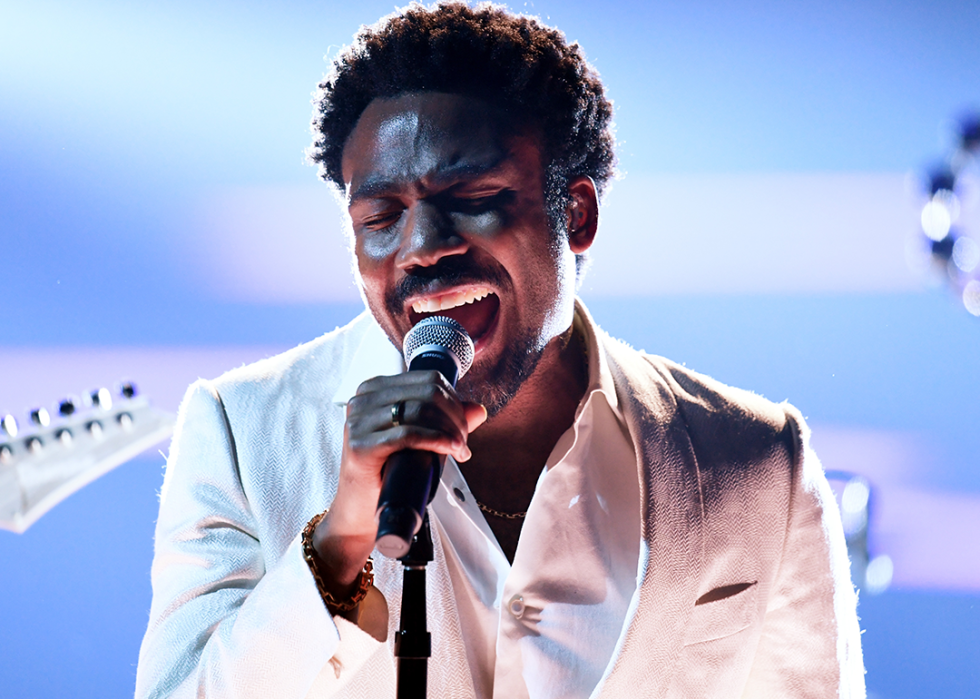
2018: 'This is America'
- Artist: Childish Gambino
Arguably the most talked-about music video of the 21st century, "This Is America" provided an instant jolt to the pop culture zeitgeist. Bridging the gap between past and present, it packs more than a century's worth of racial struggles into its near-five-minute runtime. Contemporary milestones often come and go in the blink of an eye, but this one remains too powerful to forget.
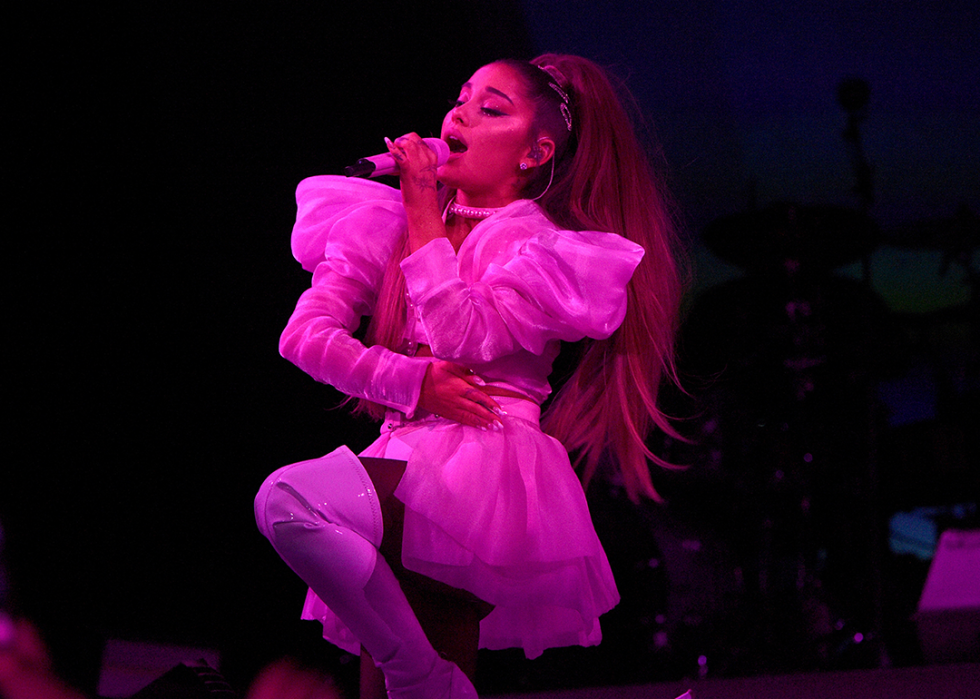
2019: '7 Rings'
- Artist: Ariana Grande
Ariana Grande may be a perennial fan favorite these days, but that doesn't mean she's impervious to the occasional controversy. Despite setting a Spotify record for the most streams in a 24-hour period, this #1 single and its video rolled out to accusations of cultural appropriation. When asked not to perform the song at the 2019 Grammys, Grande responded by skipping out on the ceremony altogether.
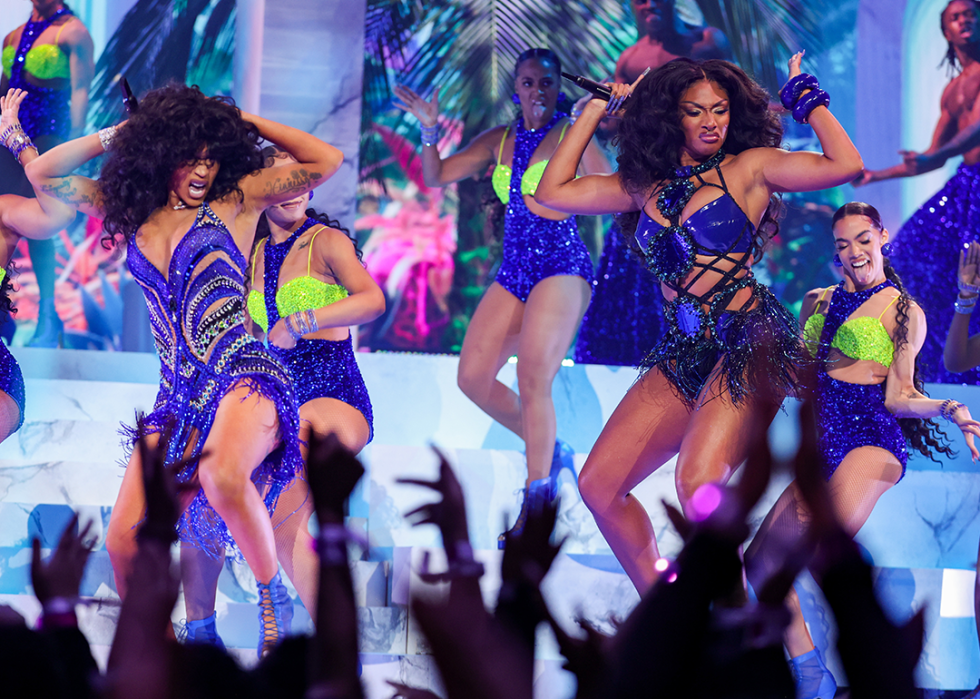
2020: 'WAP'
- Artist: Cardi B and Megan Thee Stallion
Picking up the baton from the Shirelles, rappers Cardi B and Megan Thee Stallion continued to push the envelope of female sexual expression by releasing "WAP," which features creatively explicit lyrics that incited backlash from conservatives. The Federal Communications Commission allegedly tried to sue Cardi B following her performance of the song at the Grammy Awards. Sex-positive songs will always press a few buttons, but maybe none more so than "WAP."
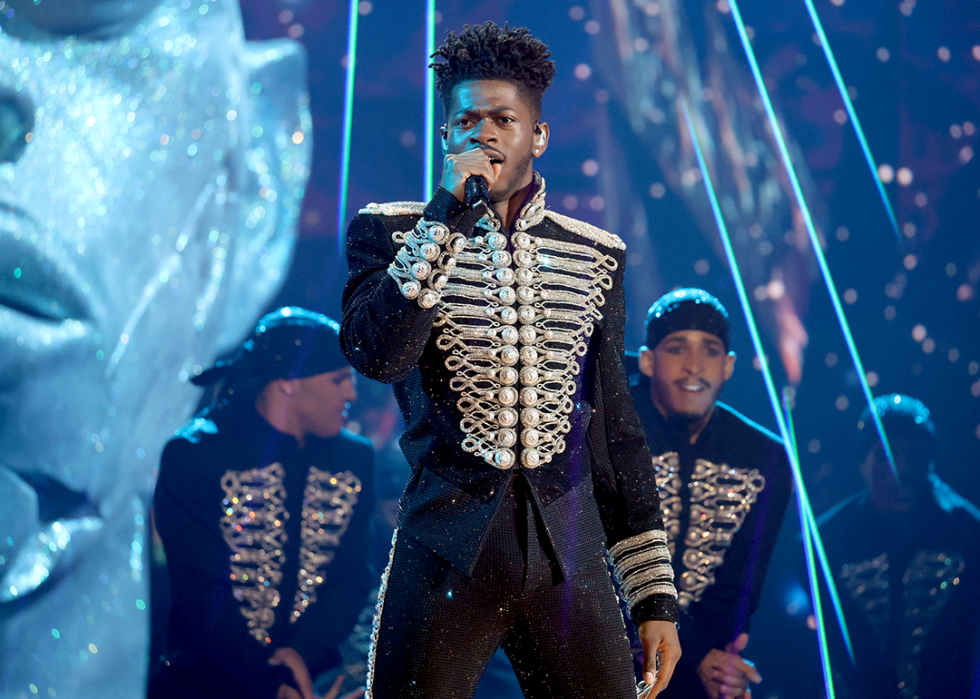
2021: 'Montero (Call Me By Your Name)'
- Artist: Lil Nas X
It is no surprise that the music video for "Montero (Call Me By Your Name)," which features the artist sliding down a pole to hell and giving the devil a lap dance, received heat from conservative journalists for its queer eroticism. Although the song wasn't officially banned on streaming platforms, some international fans claimed it was no longer available for streaming in their country.
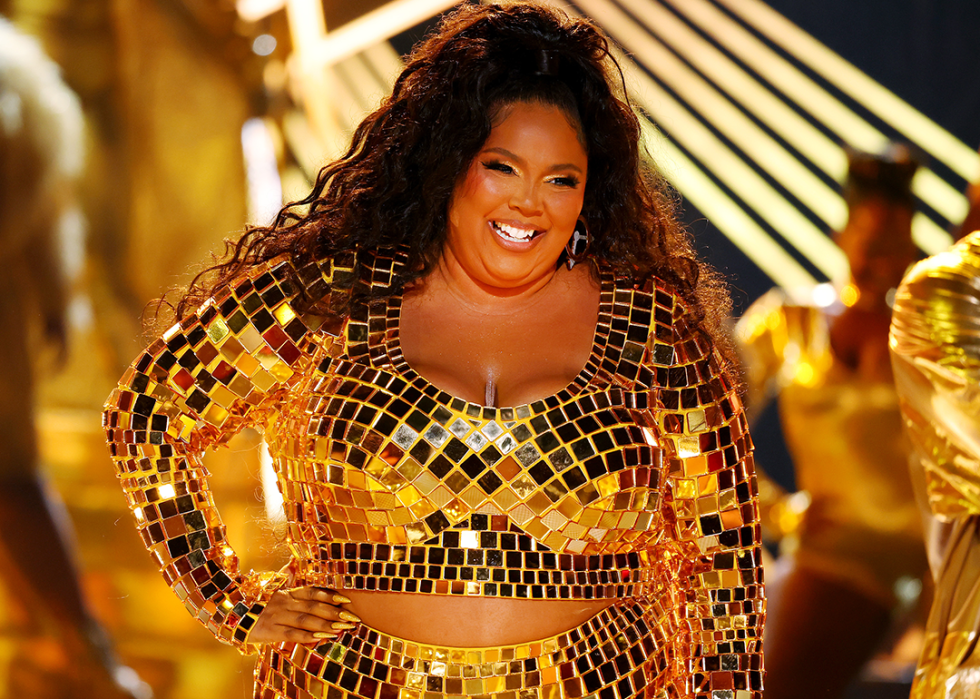
2022: 'Grrrls'
- Artist: Lizzo
Originally released with the lyric "spaz," Lizzo's own fans took to Twitter to express their disappointment with the ableist language. But unlike most artists who went through similar controversies, Lizzo acknowledged the criticism and, a week later, rereleased the song with a lyric change and issued an apology. Lizzo was praised by fans and critics alike for her proactive response, and although the artist is not shy of pushing the boundary, there are some lines that even she won't cross.
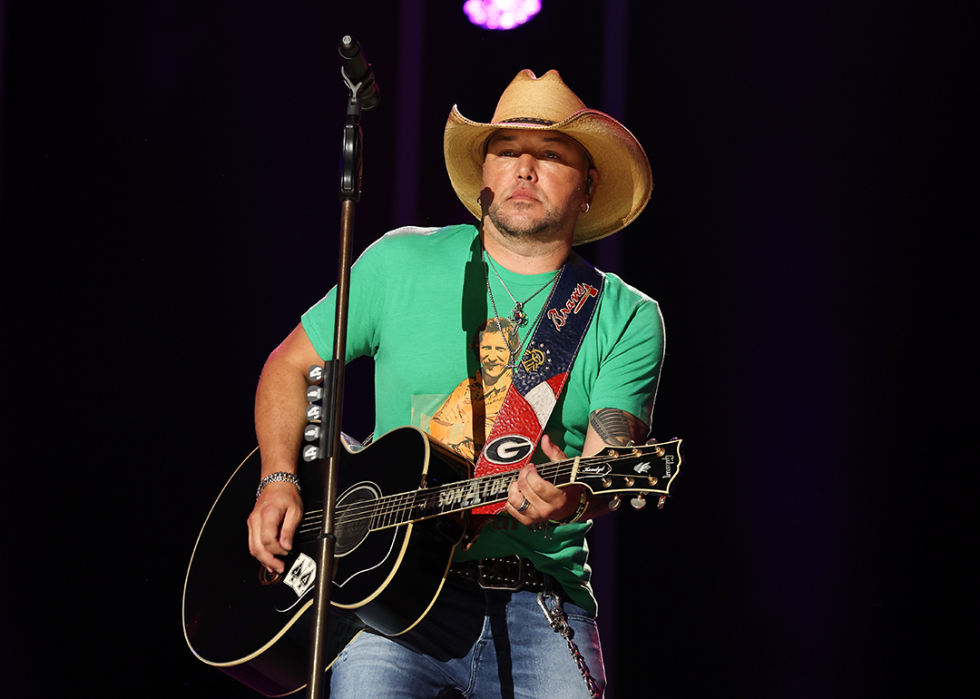
2023: 'Try That In A Small Town'
- Artist: Jason Aldean
Aldean's music video features clips from the looting that occurred during various Black Lives Matter protests and the lyrics: "Try that in a small town/ See how far you make it down the road." Some say such lyrics encourage violence at a time when racism is at the forefront of public conversation. Perhaps that is why Country Music Television ultimately pulled the music video.
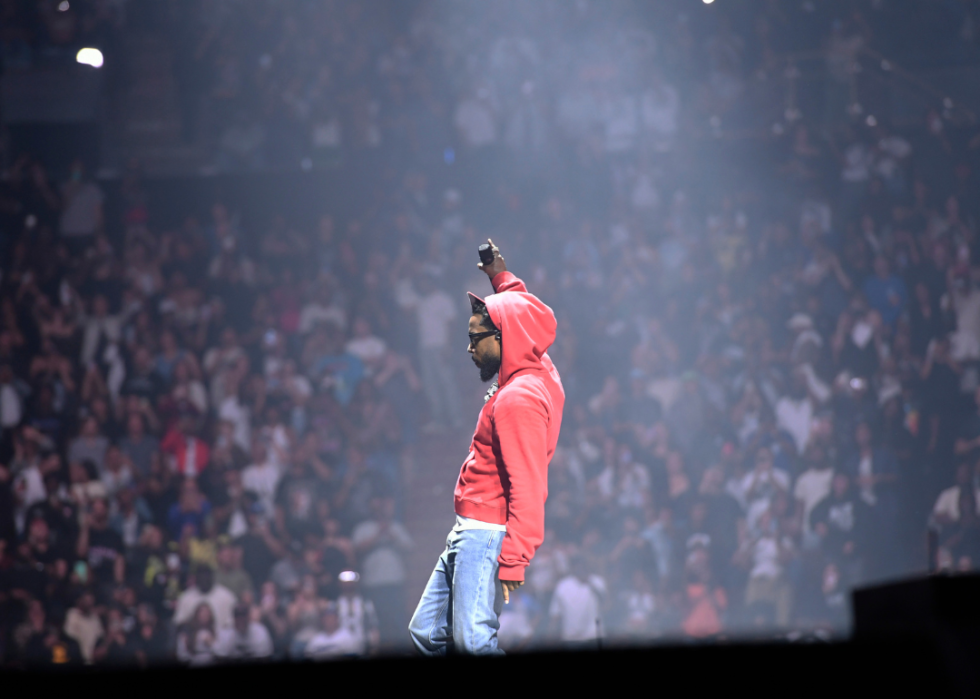
2024: 'Not Like Us'
-Artist: Kendrick Lamar
Few hip-hop feuds could rival the beef between Drake and Kendrick Lamar—after the Toronto-born muscian released two tracks dissing Lamar in April 2024, Lamar responded with a multi-song attack spearpointed by the ultra-catchy "Not Like Us." The track spotlights serious accusations against Drake, centered around a refrain questioning Drake's authenticity as a rapper. "Not Like Us" ultimately spent a record-breaking 25 weeks atop the Billboard Hot Rap Songs chart, leaving no doubt as to which artist won the war.

2025: 'Actually Romantic'
-Artist: Taylor Swift
When you're as famous as Taylor Swift is, controversy is inevitable. Her October 2025 album "The Life of a Showgirl" proved to be her most divisive album yet, but one song in particular earned the most headlines: "Actually Romantic," which many took to be a diss track aimed at fellow pop star Charli xcx. While Swift certainly hasn't confirmed the target of the song—or if it's about more than one person or event—the references peppered throughout do seem centered around Charli. And whether the feud is one-sided or not, Swift's detractors argue that the song is petty and punching down.
Additional writing by Rachel Geveden, Cu Fleshman, Louis Peitzman. Story editing by Chris Compendio. Copy editing by Paris Close.



